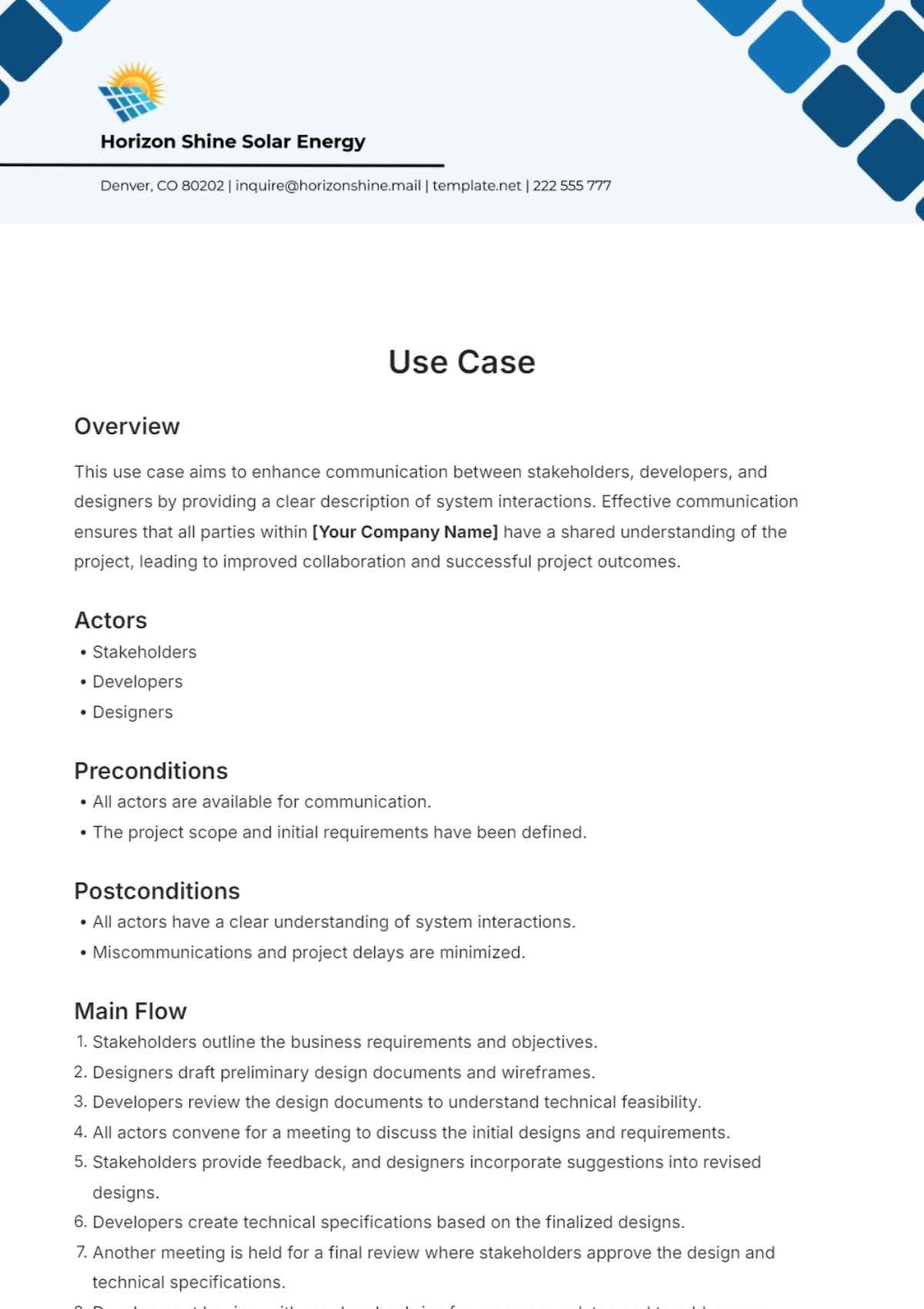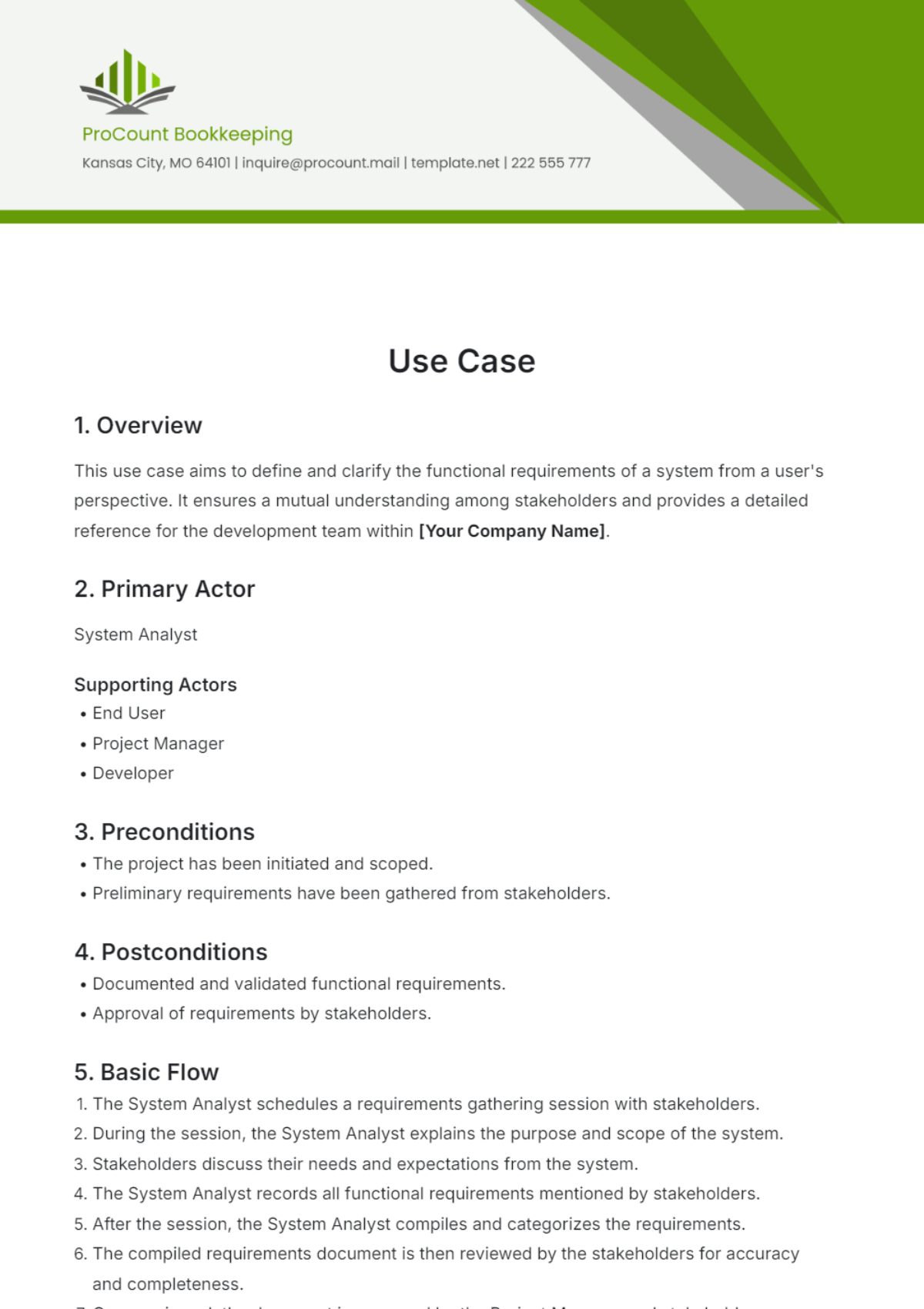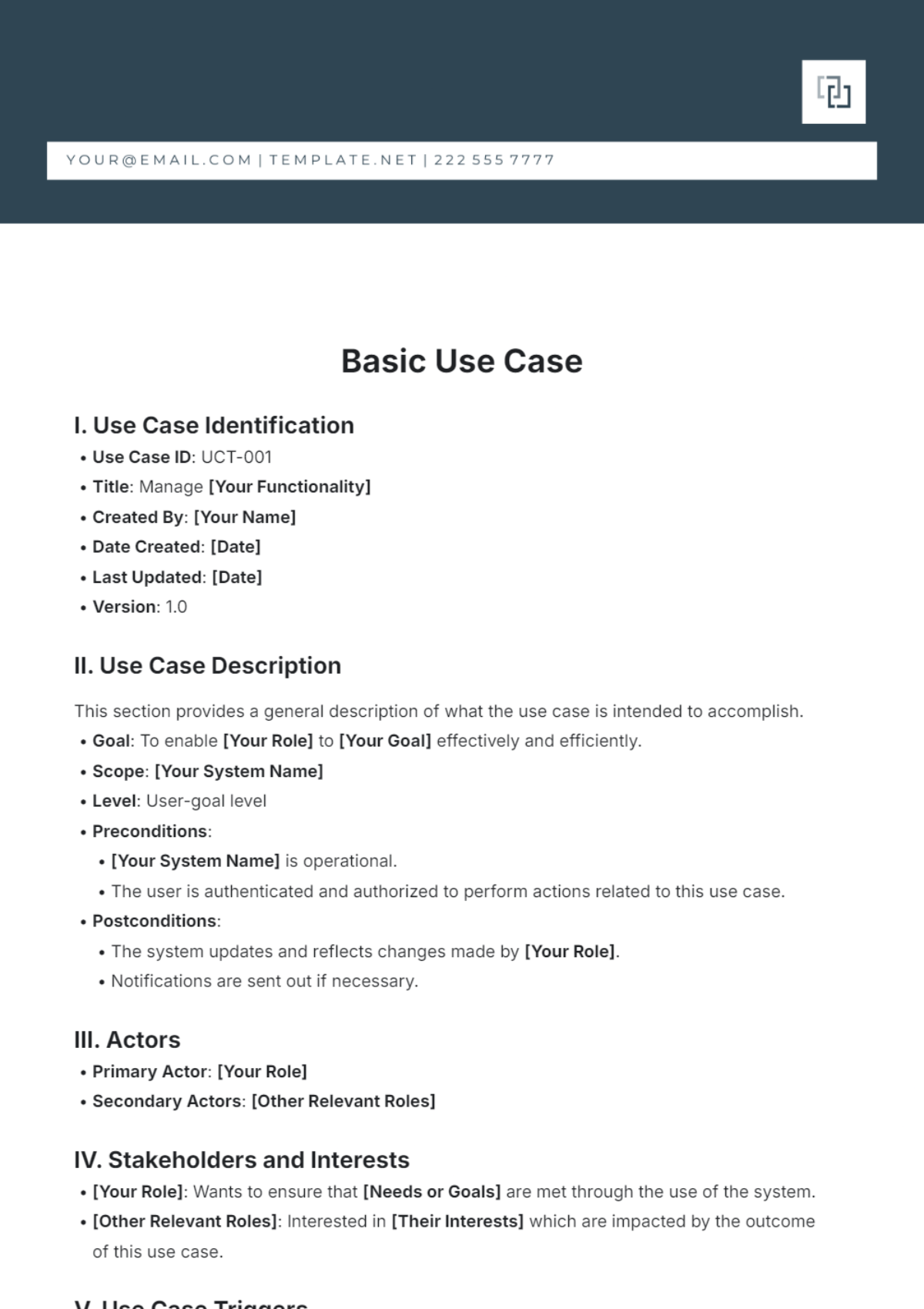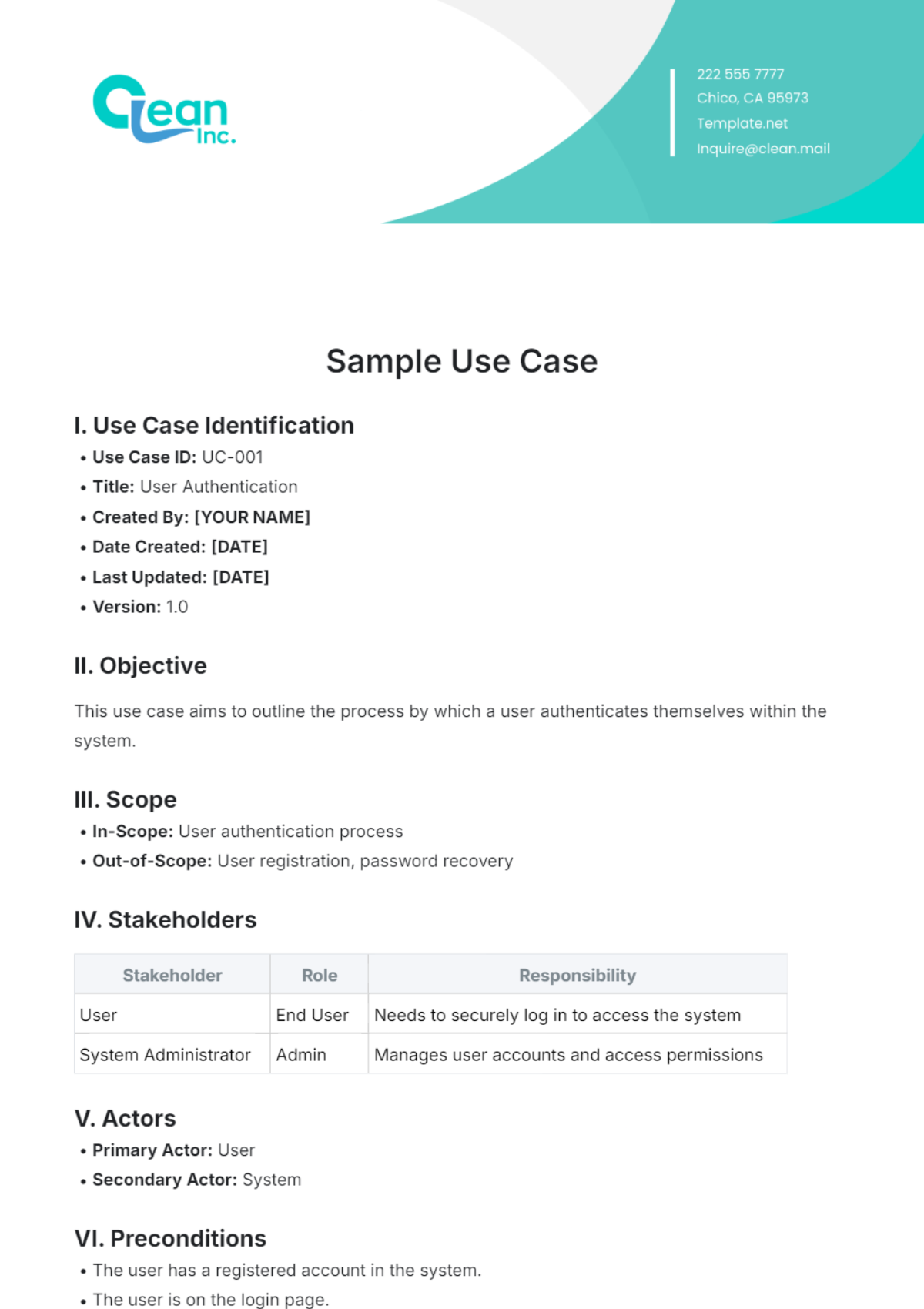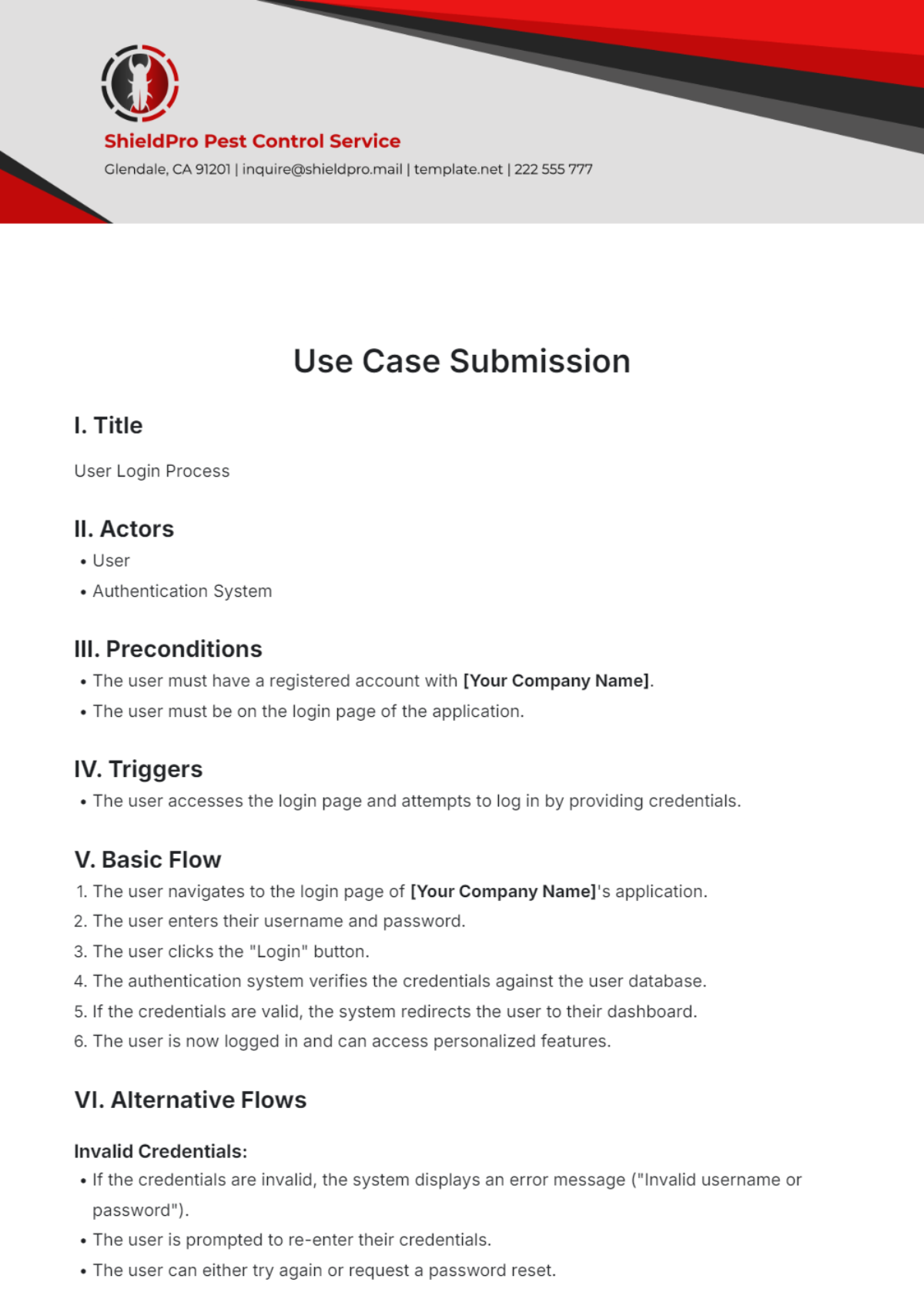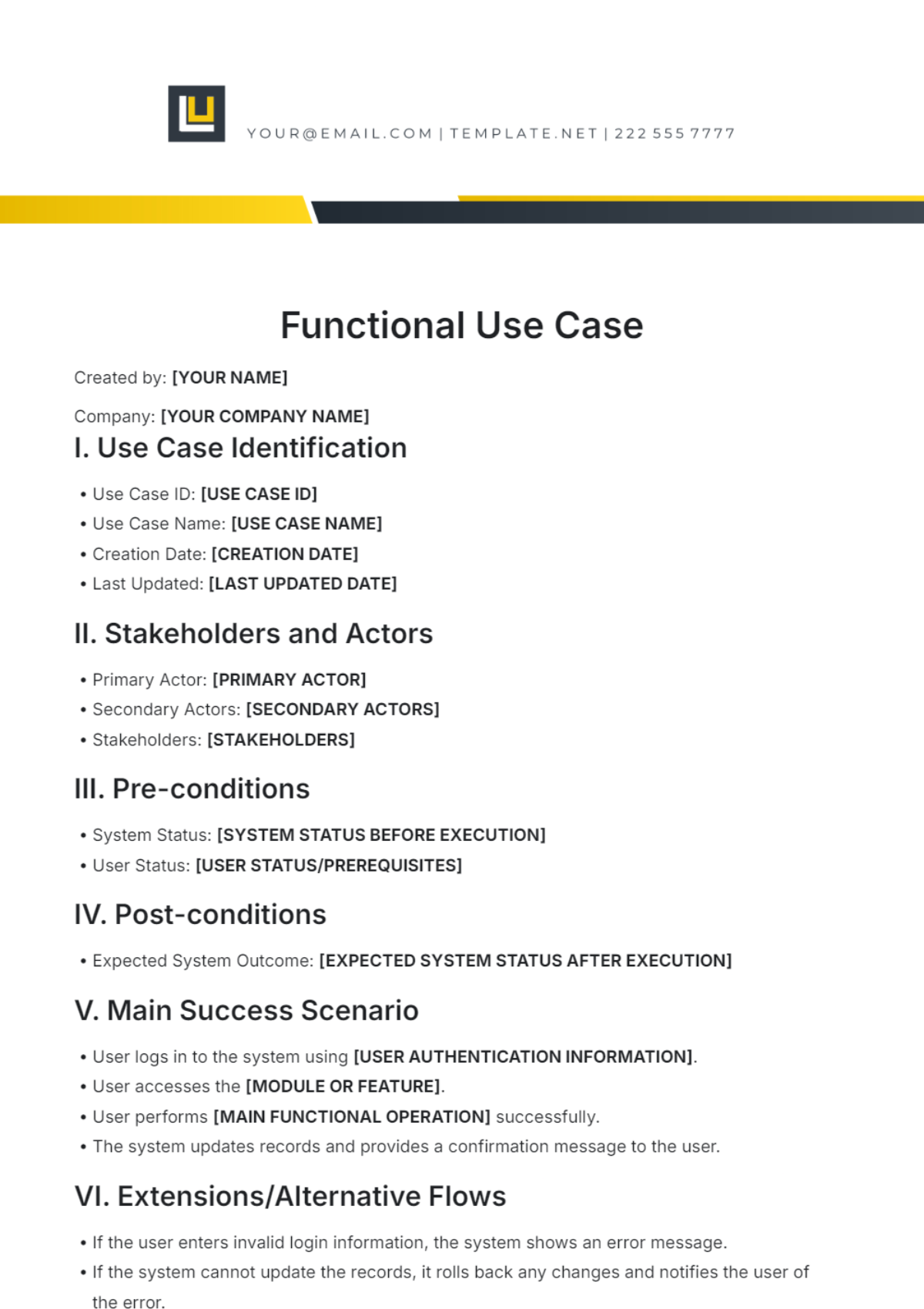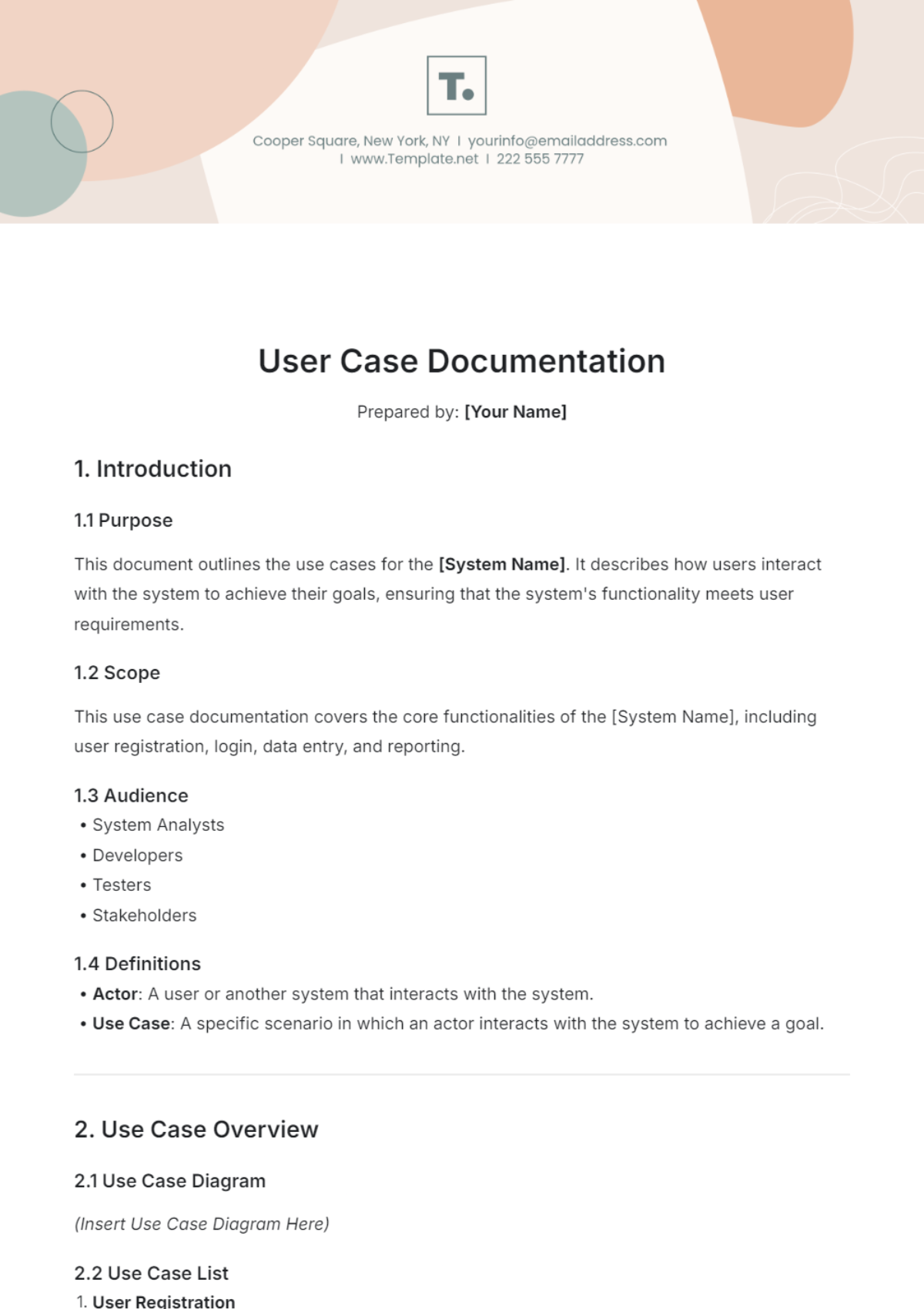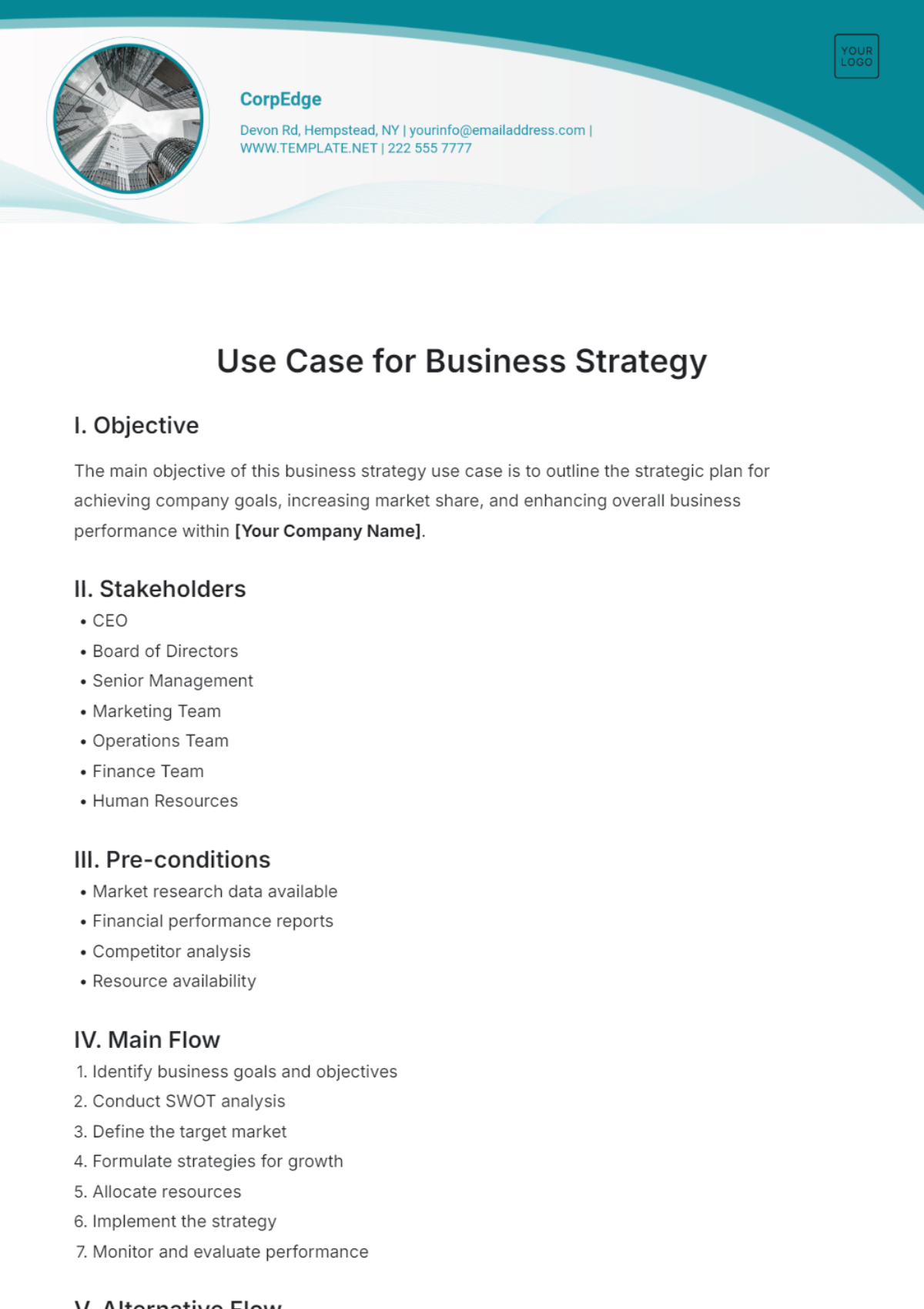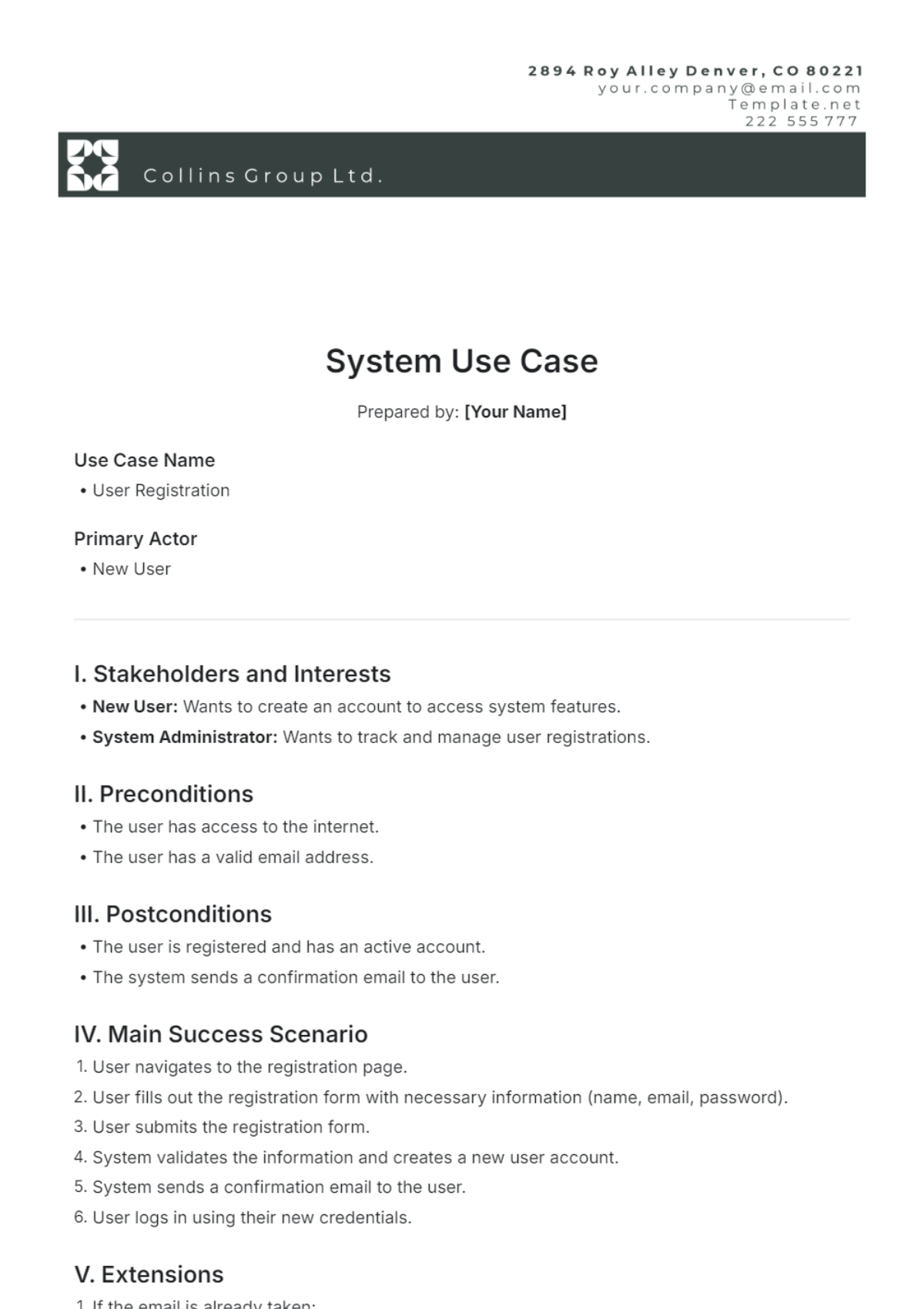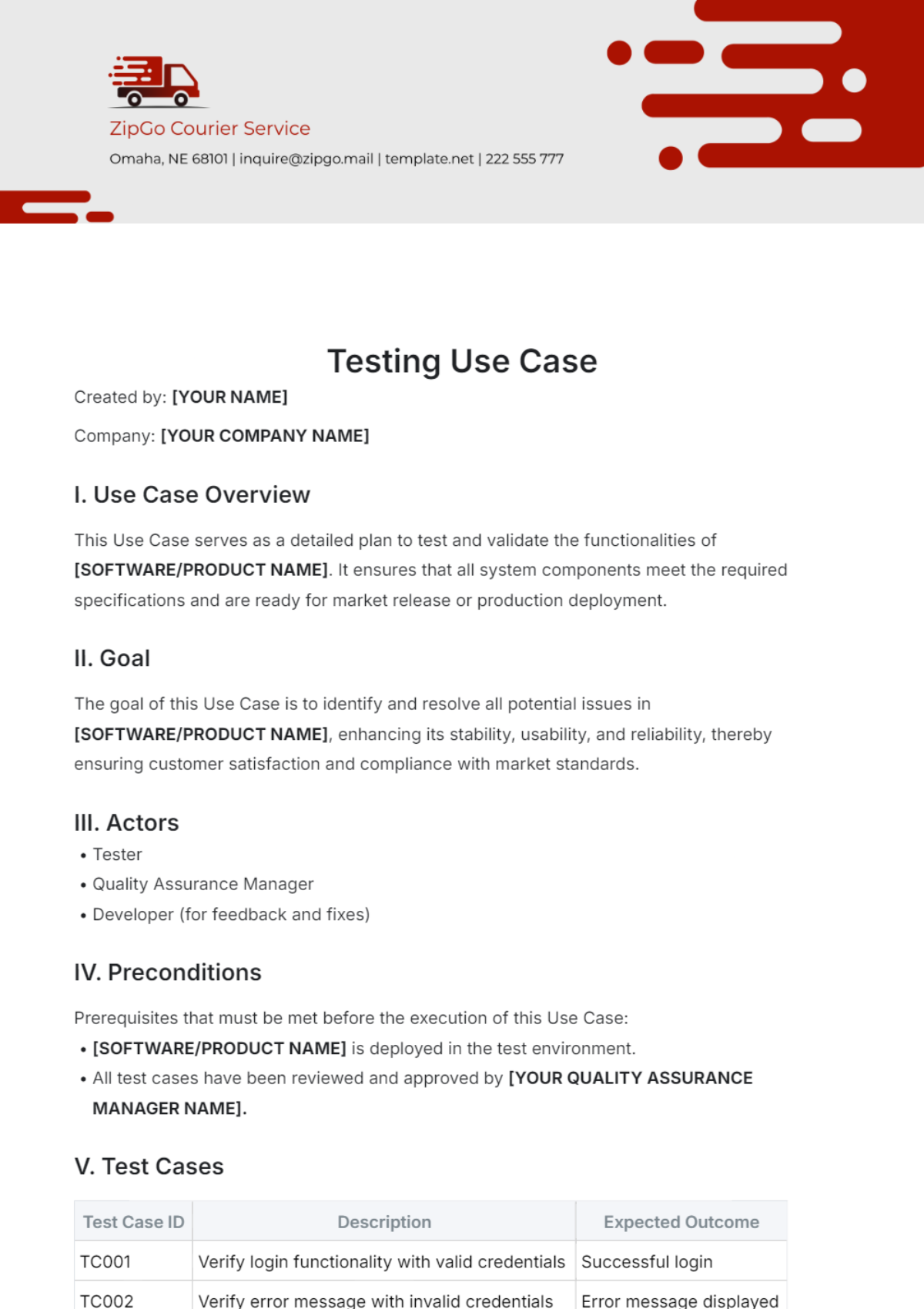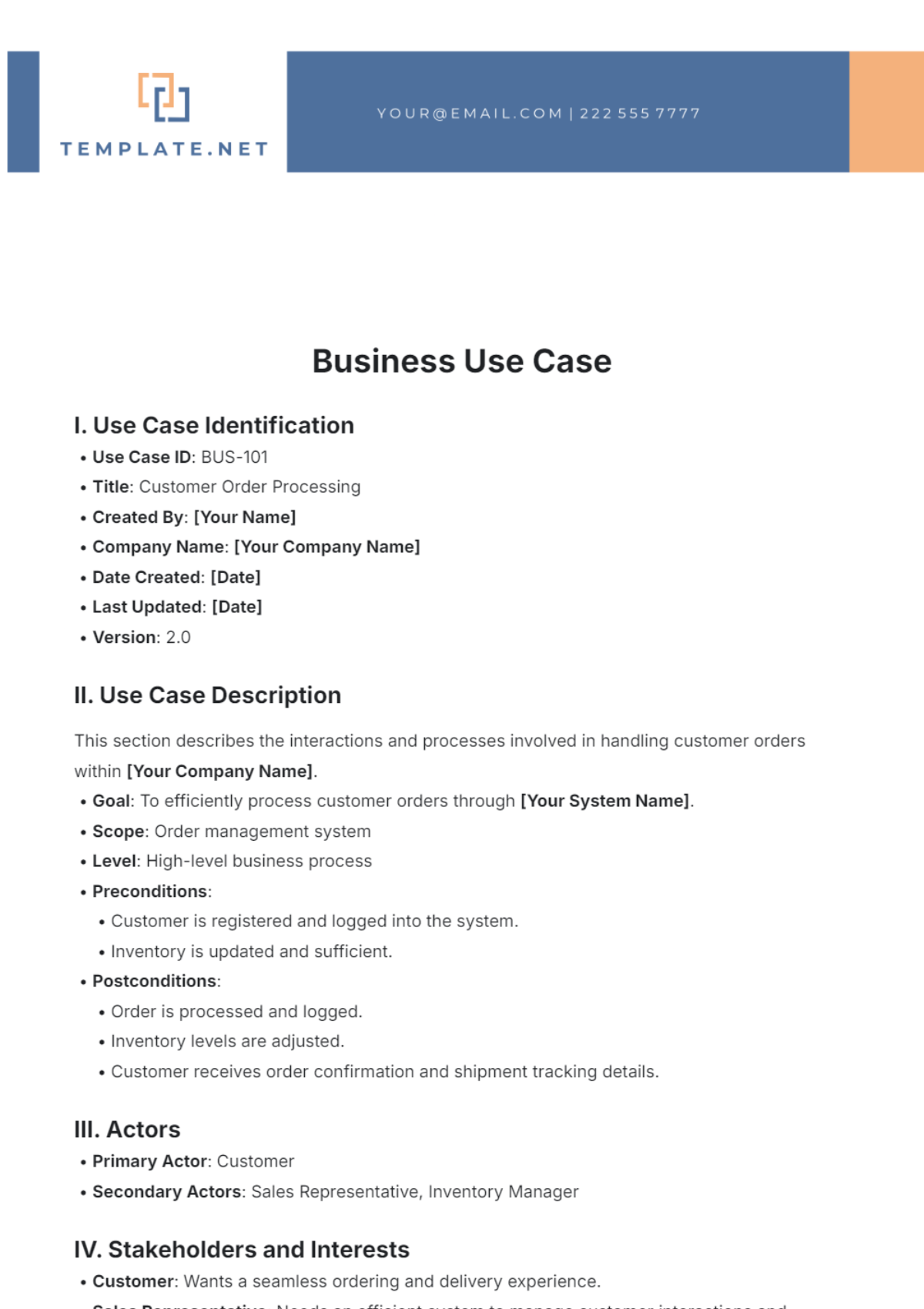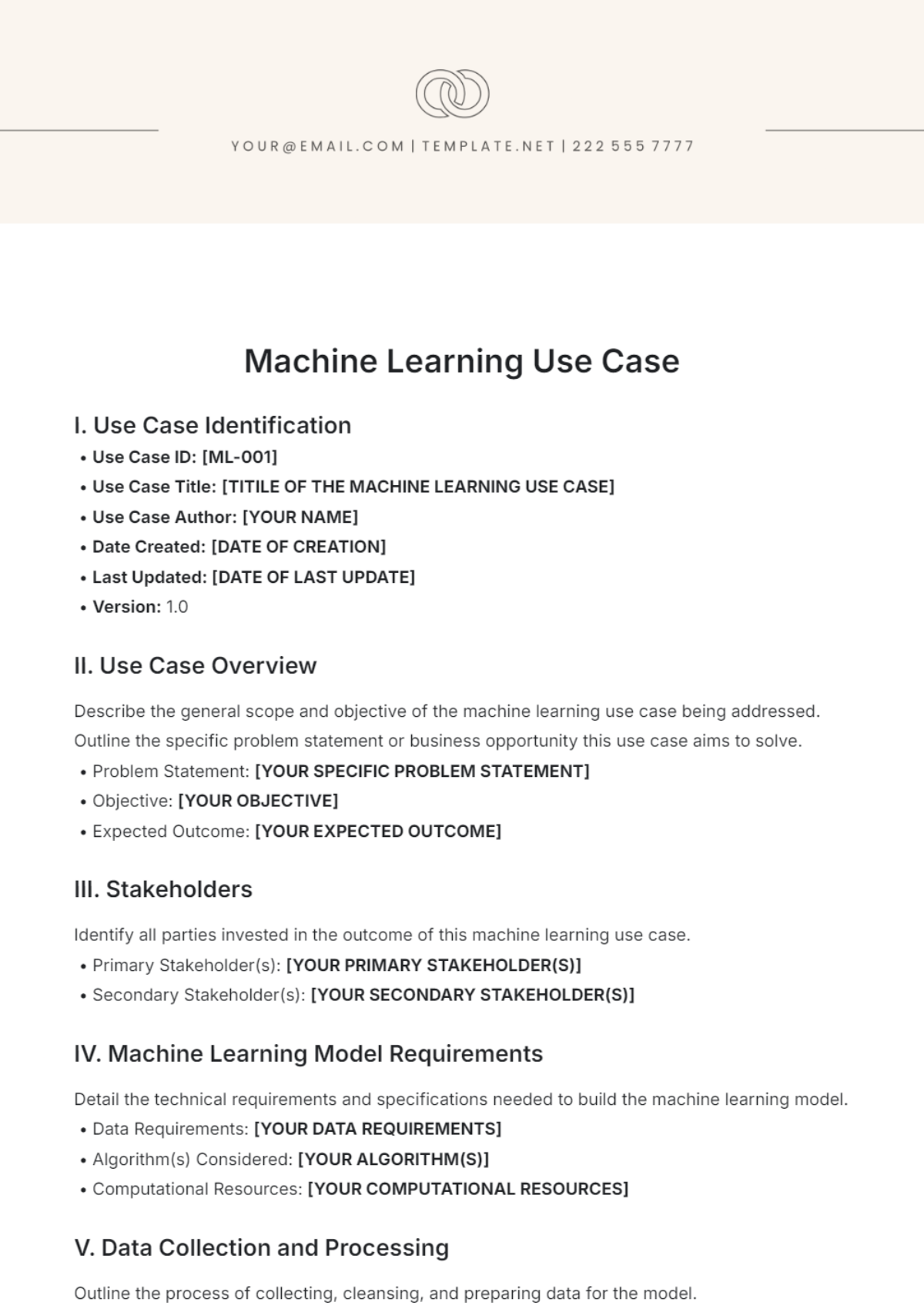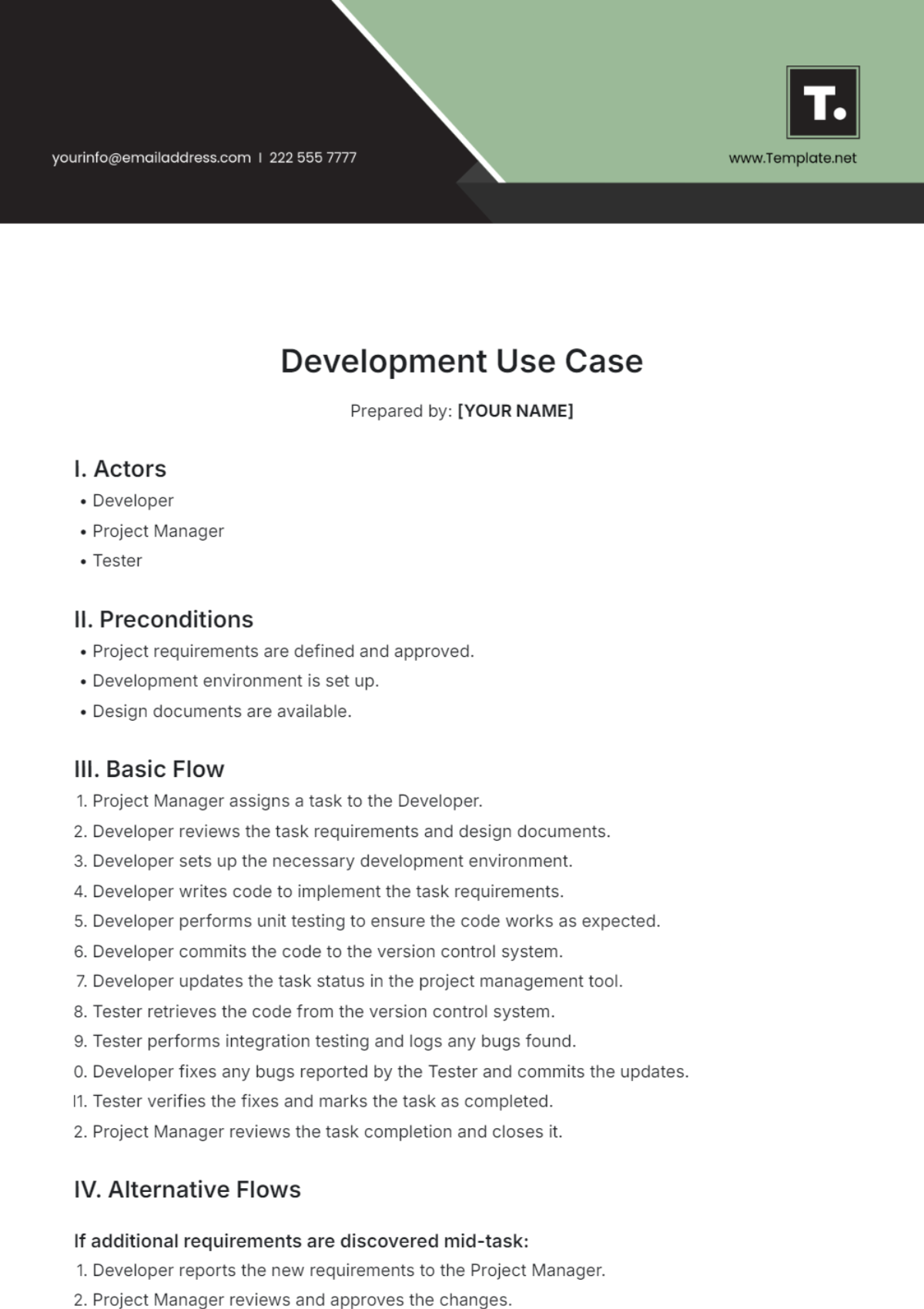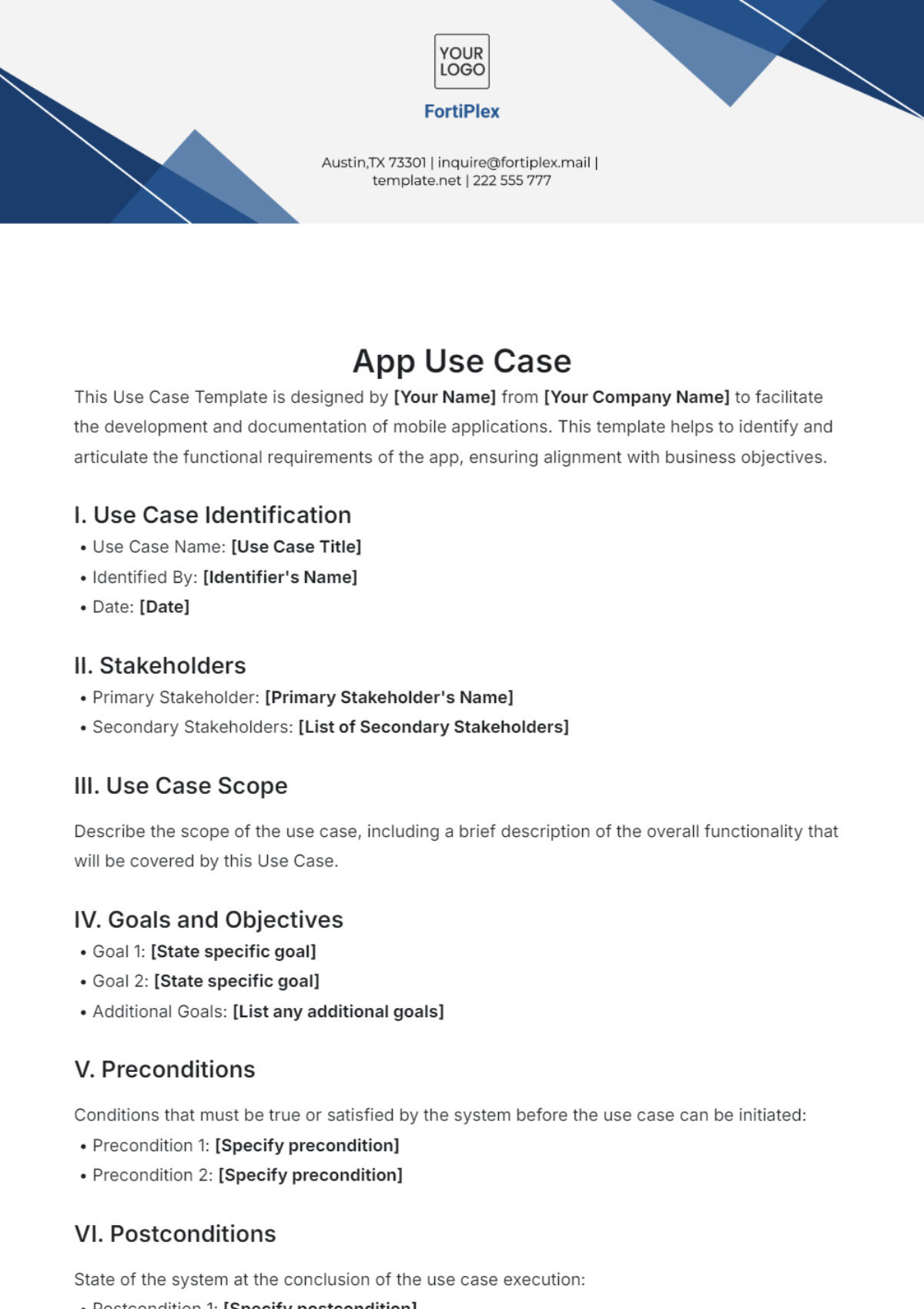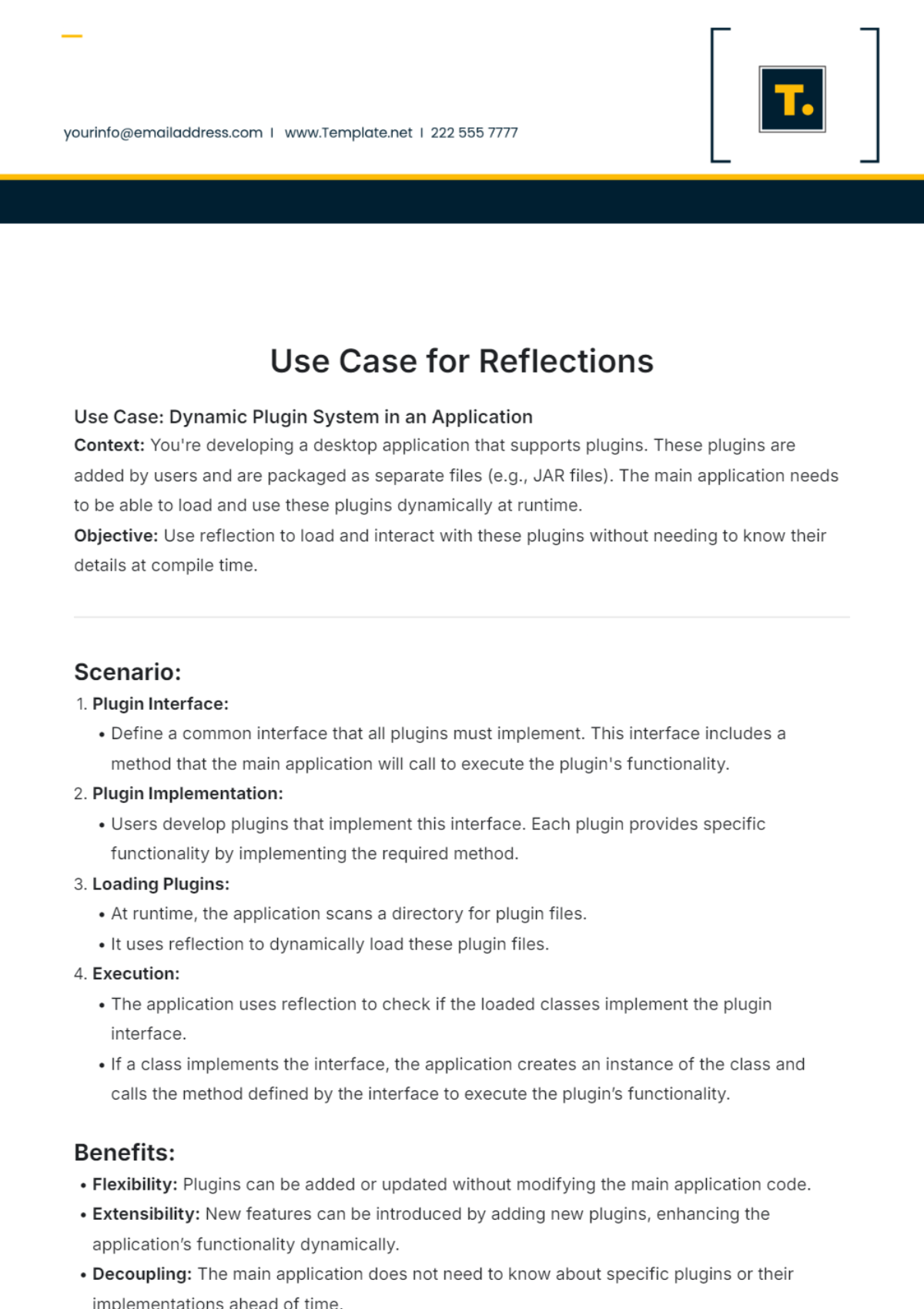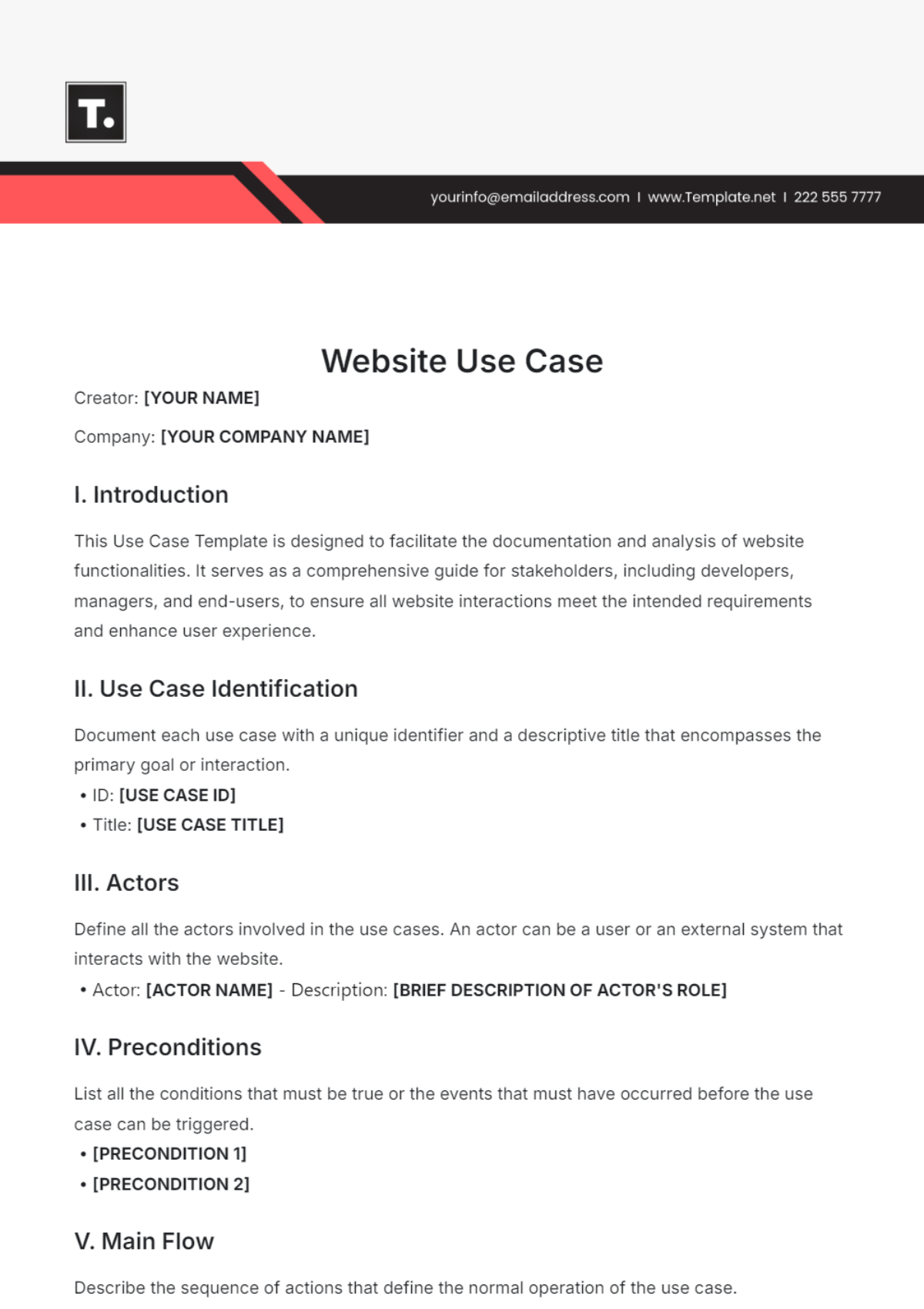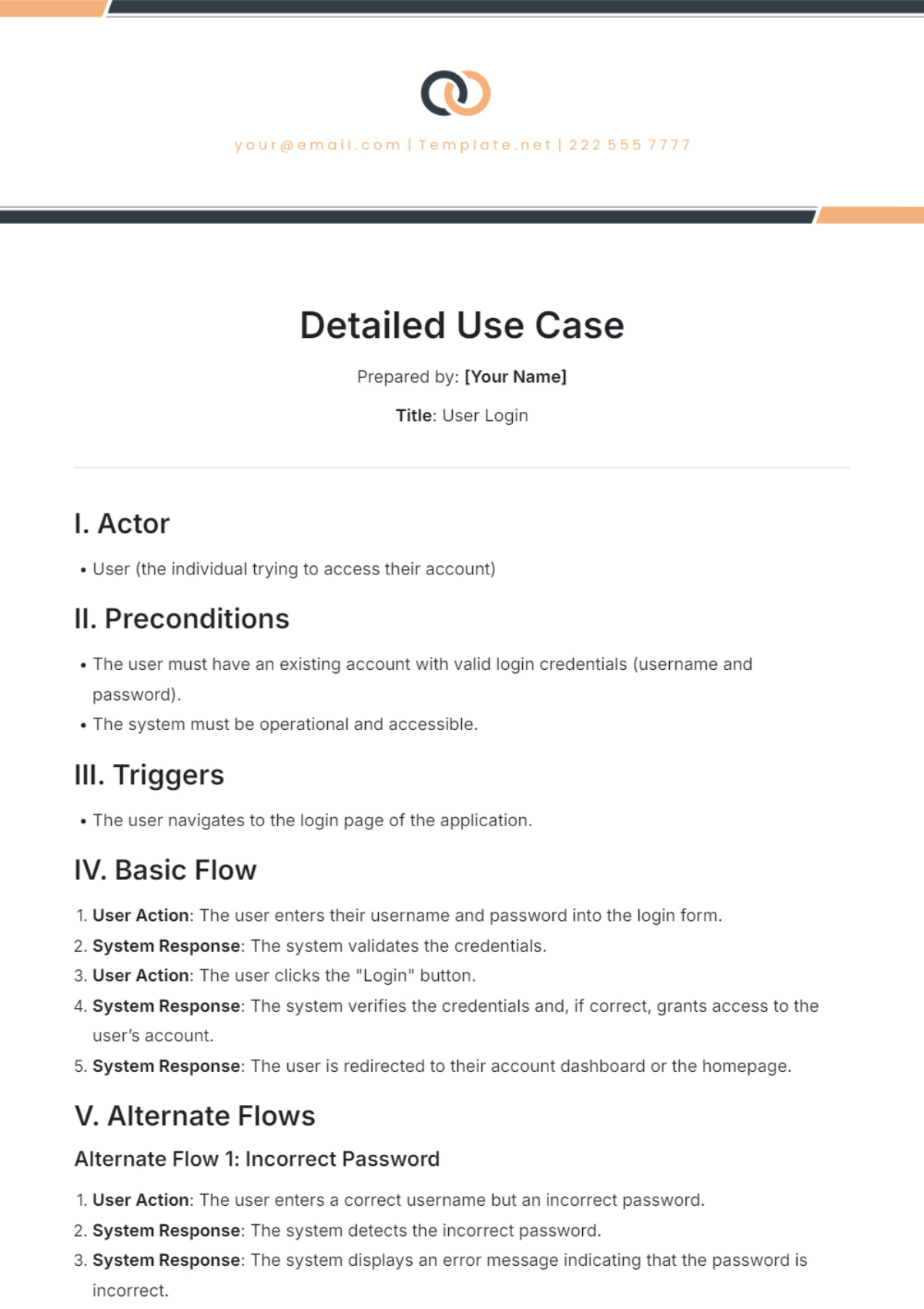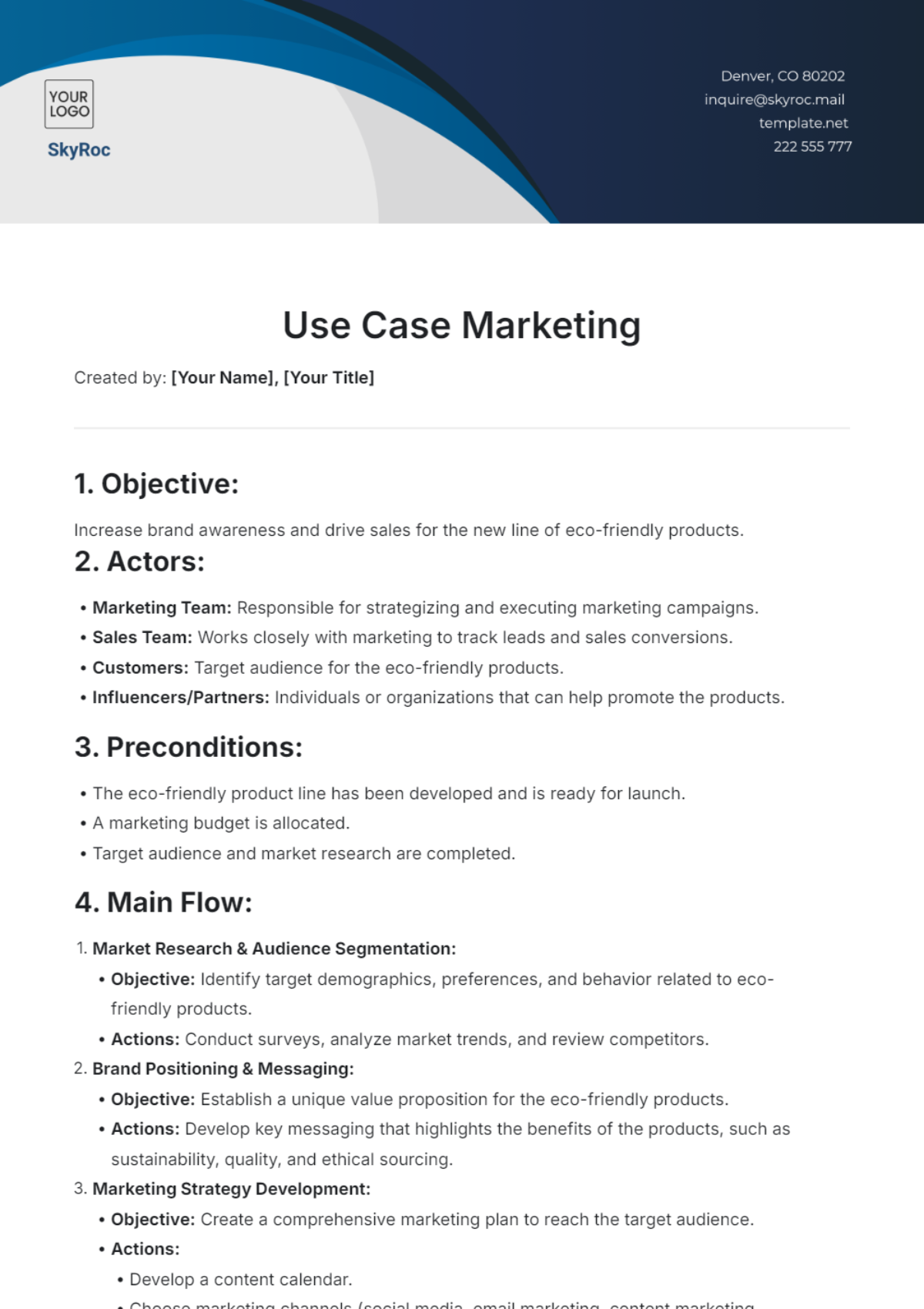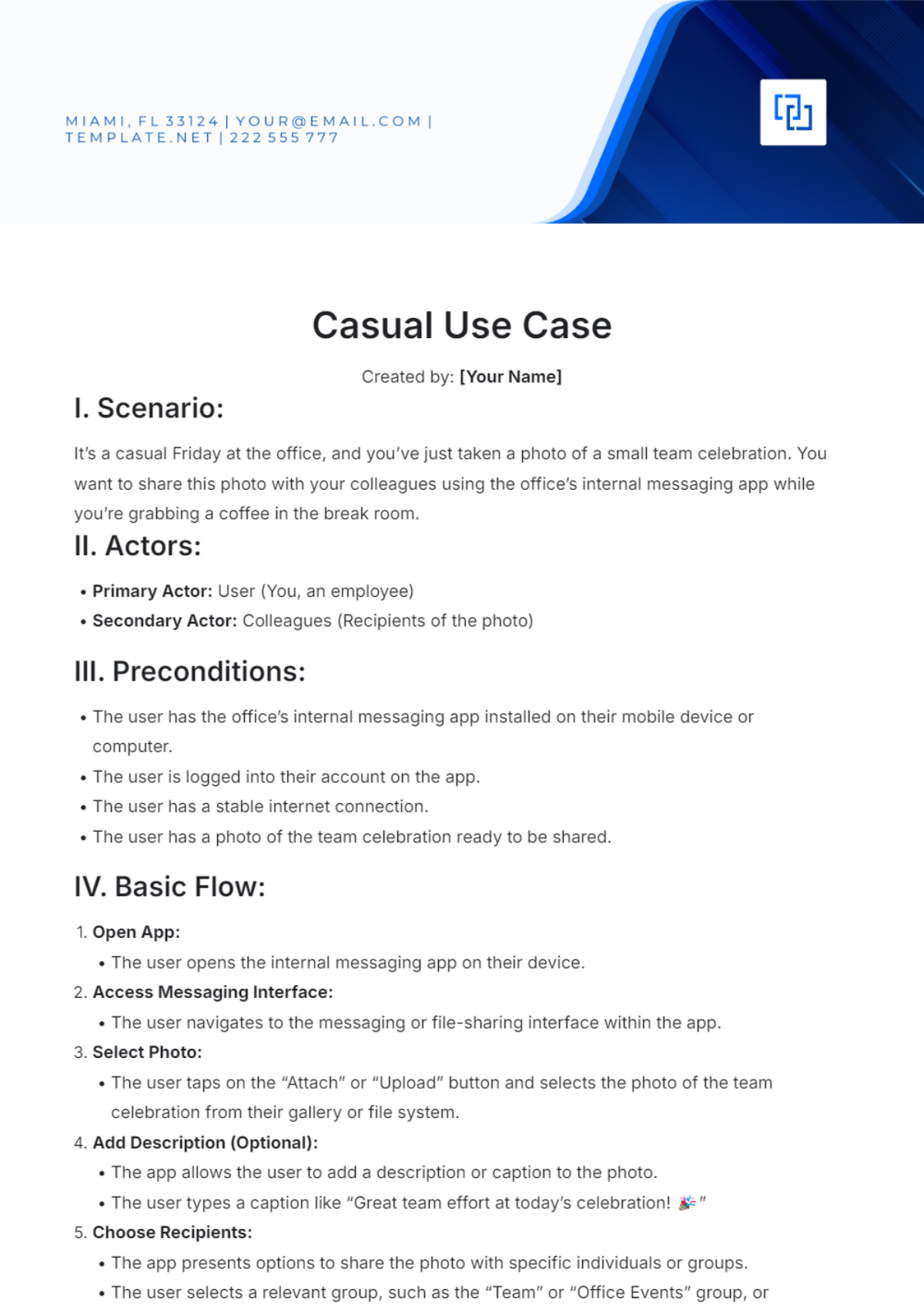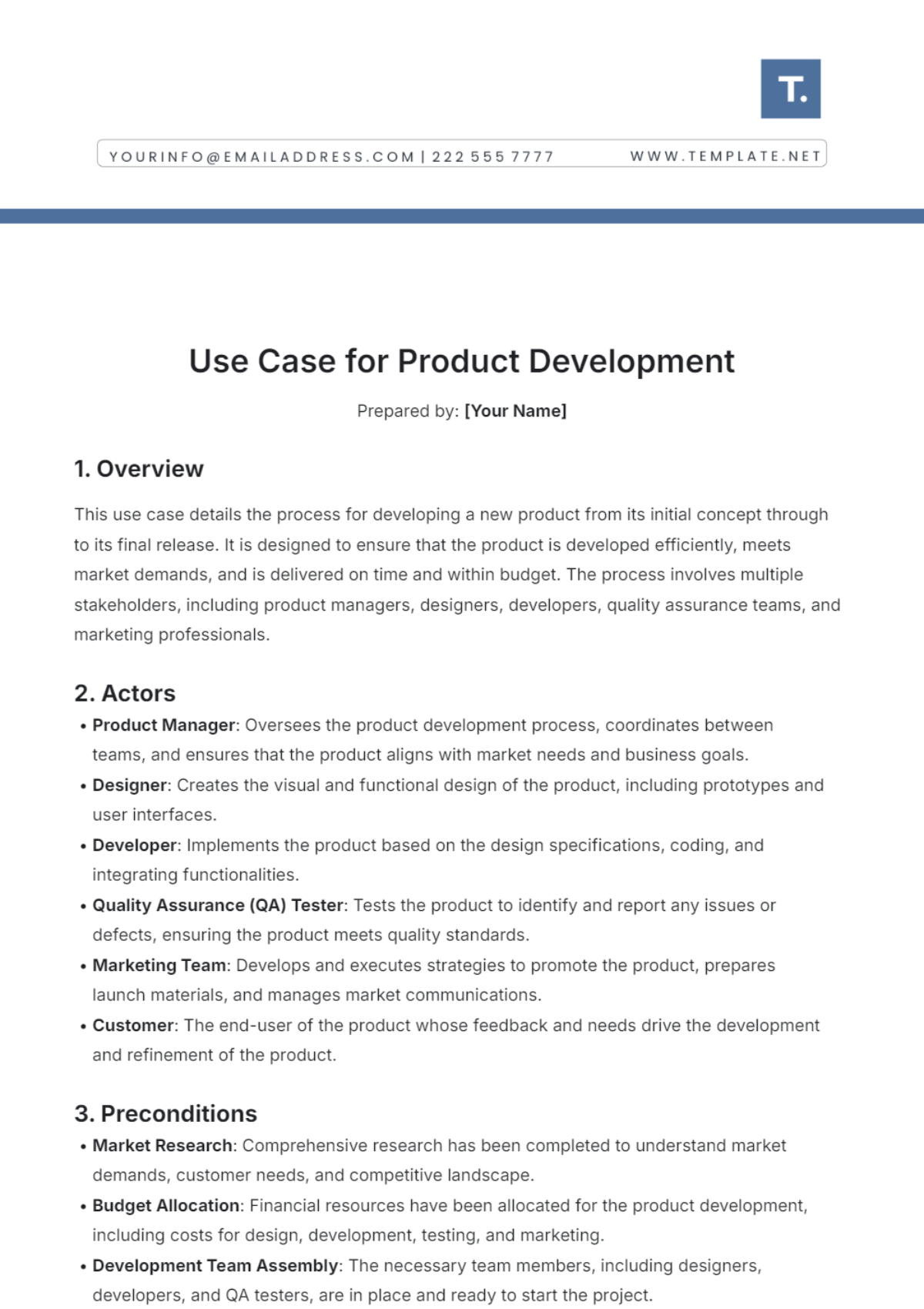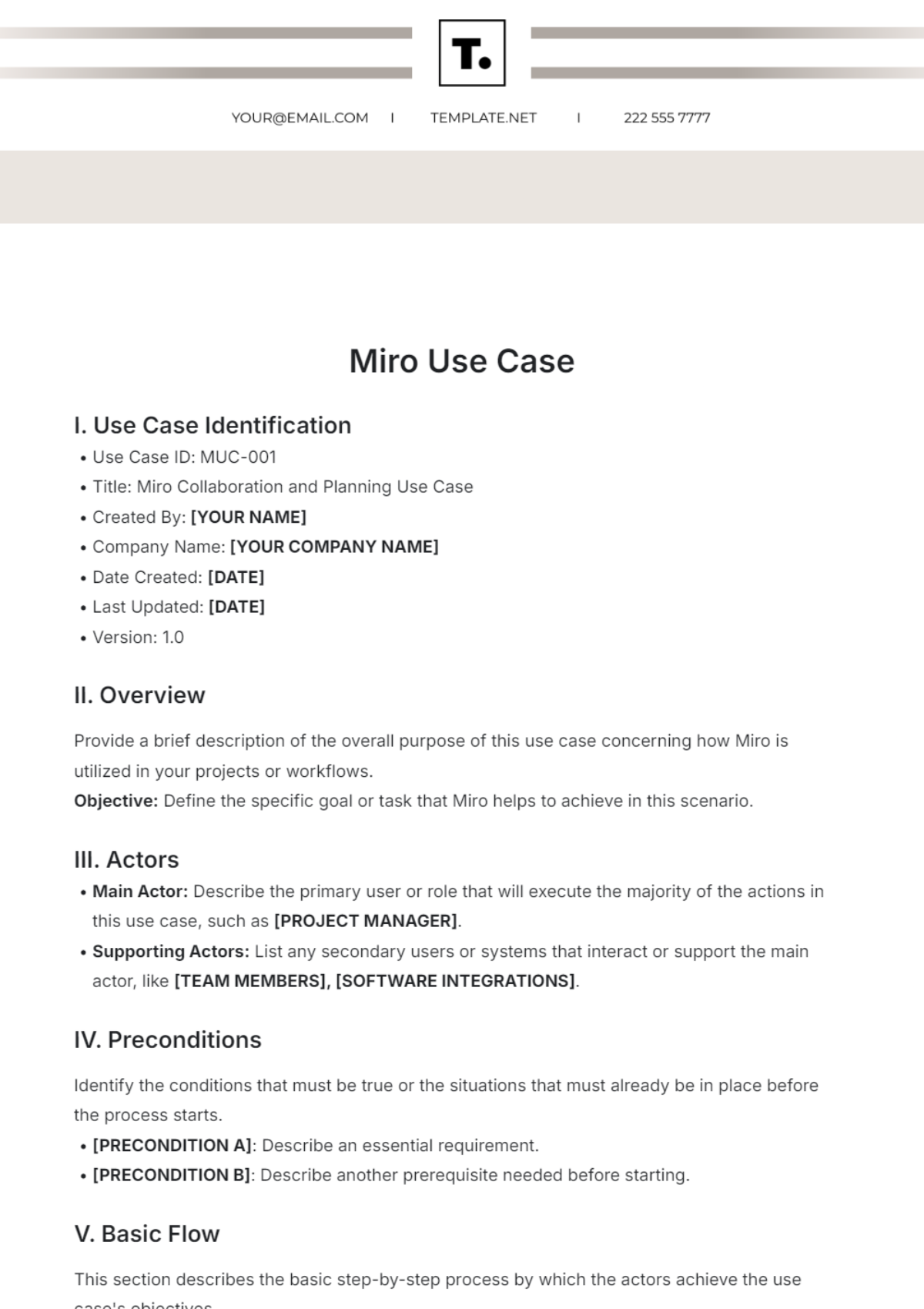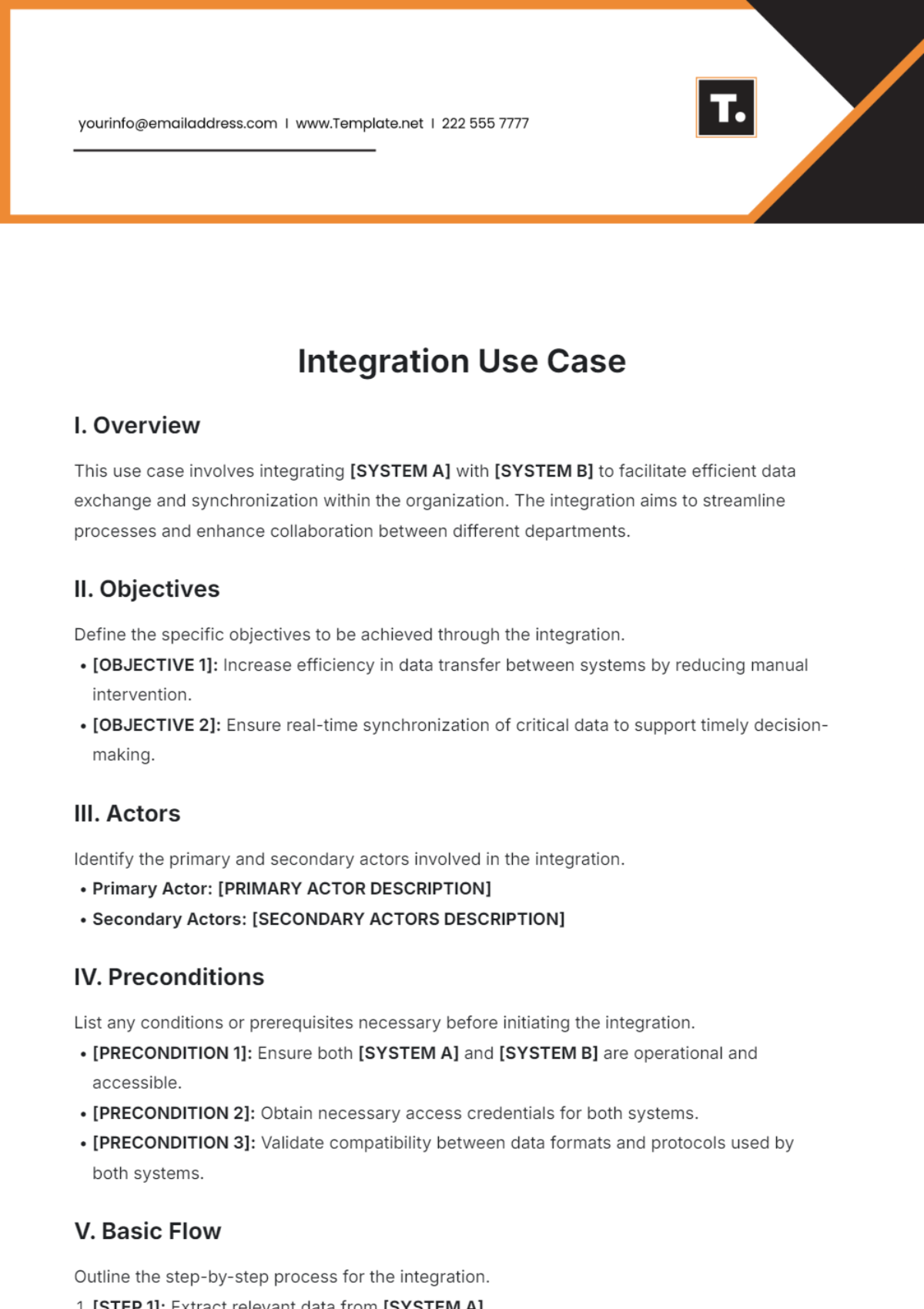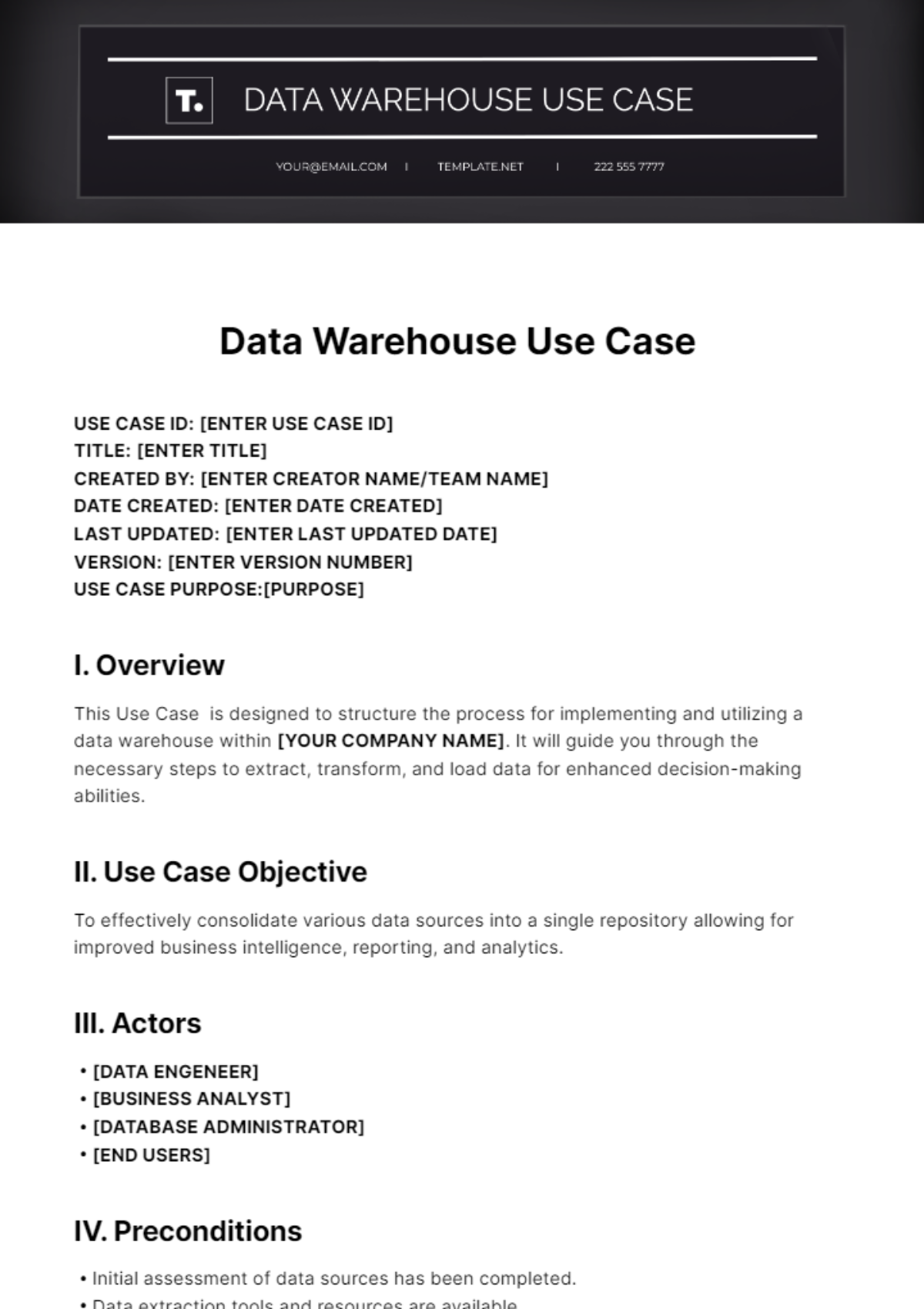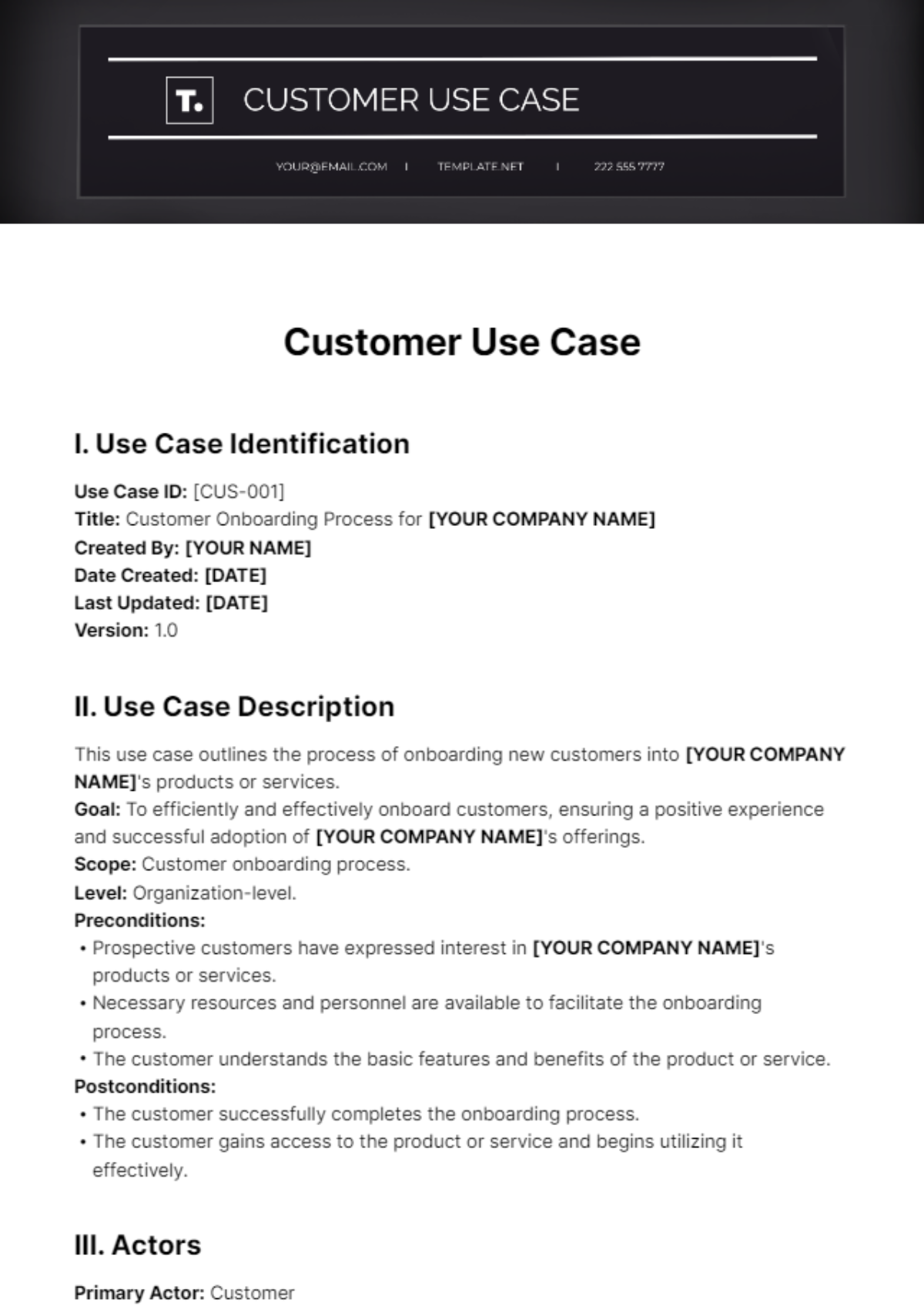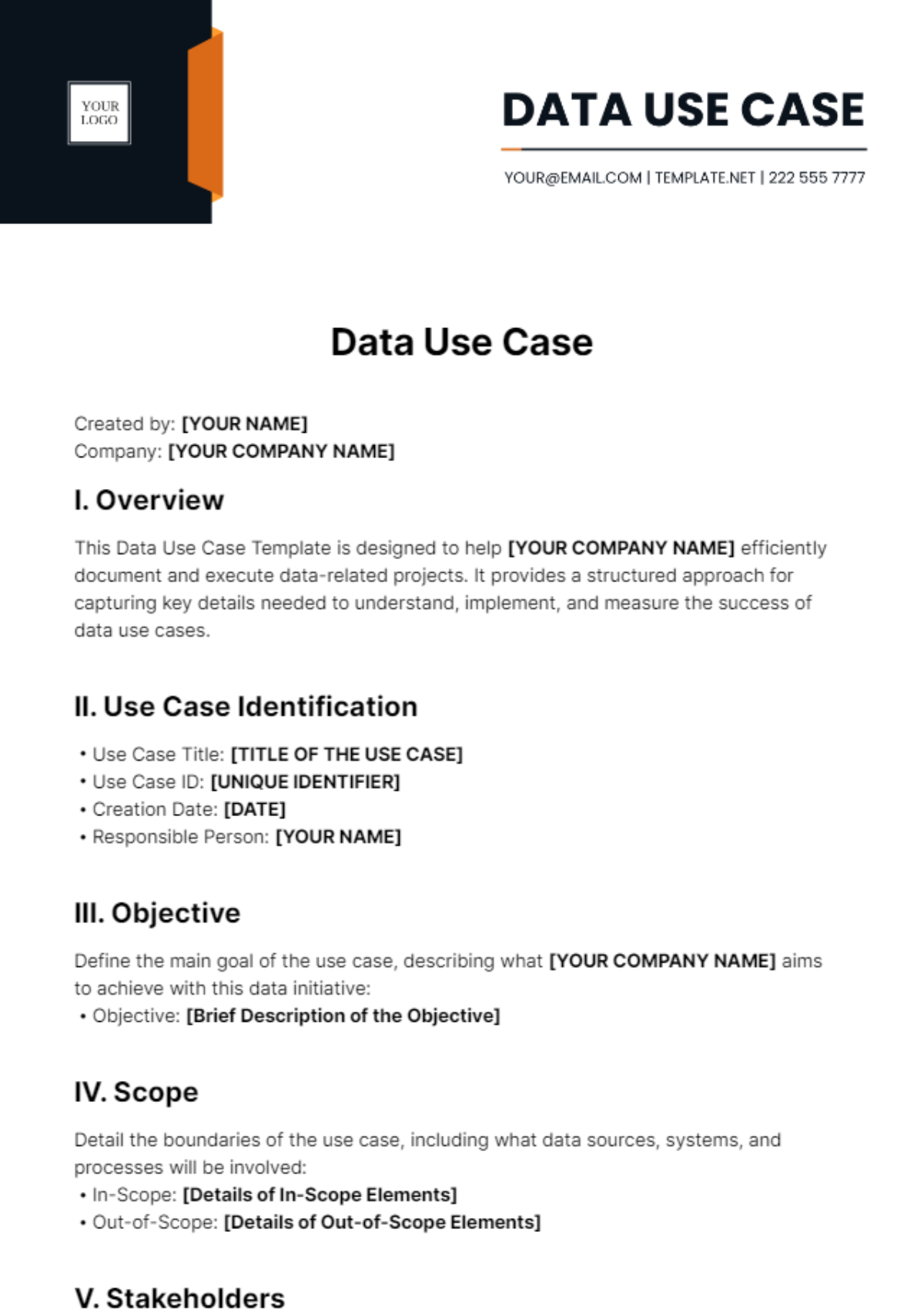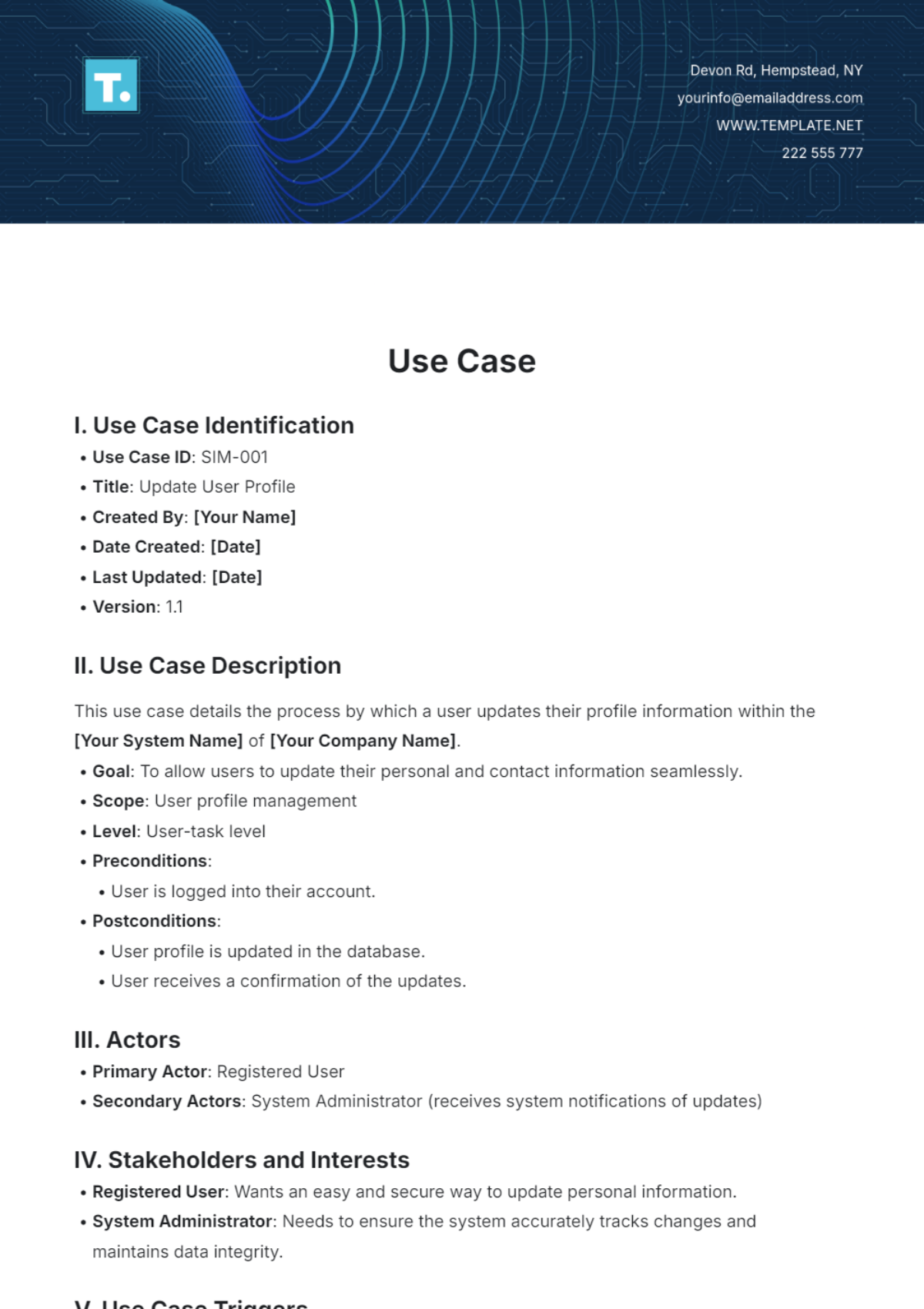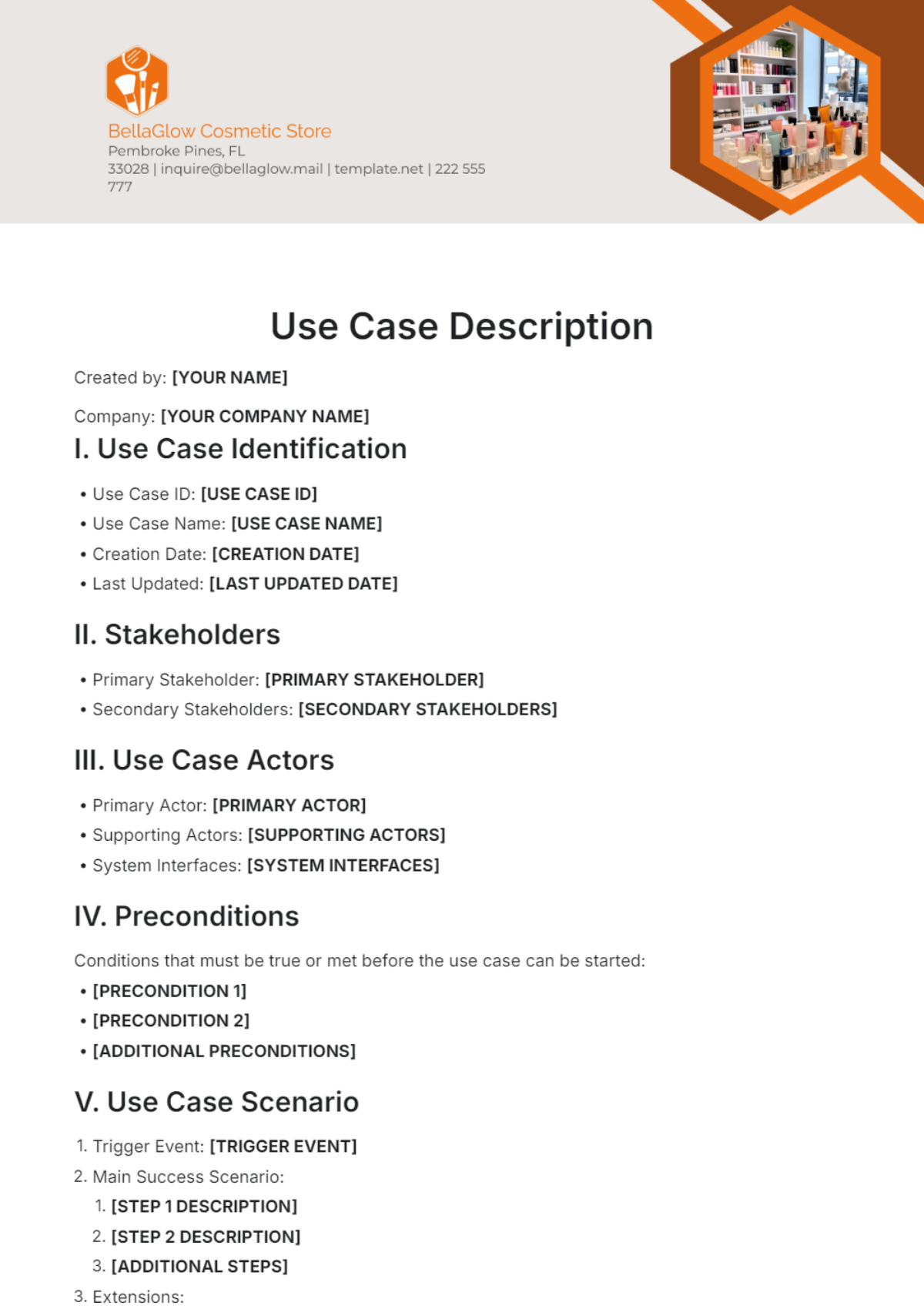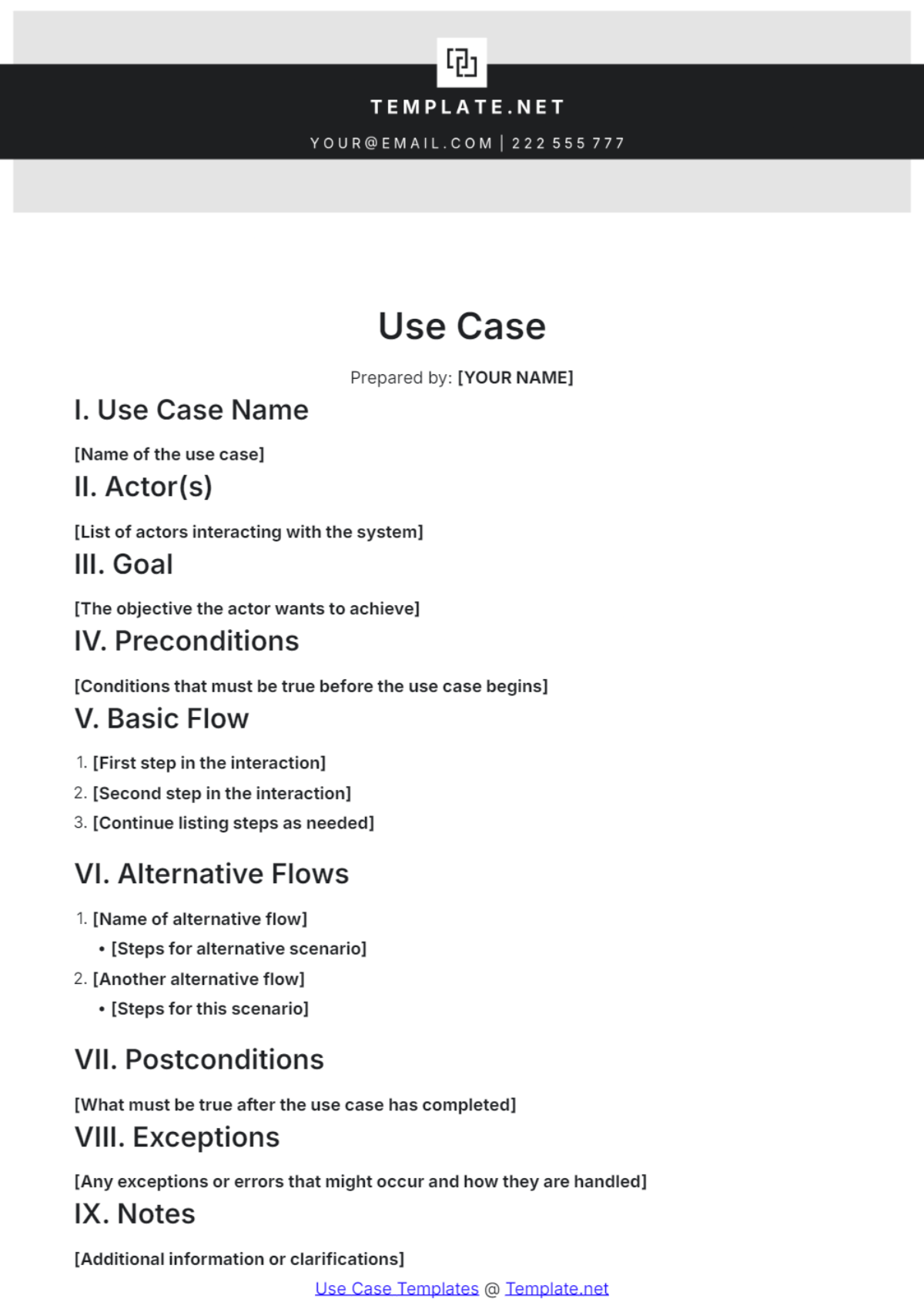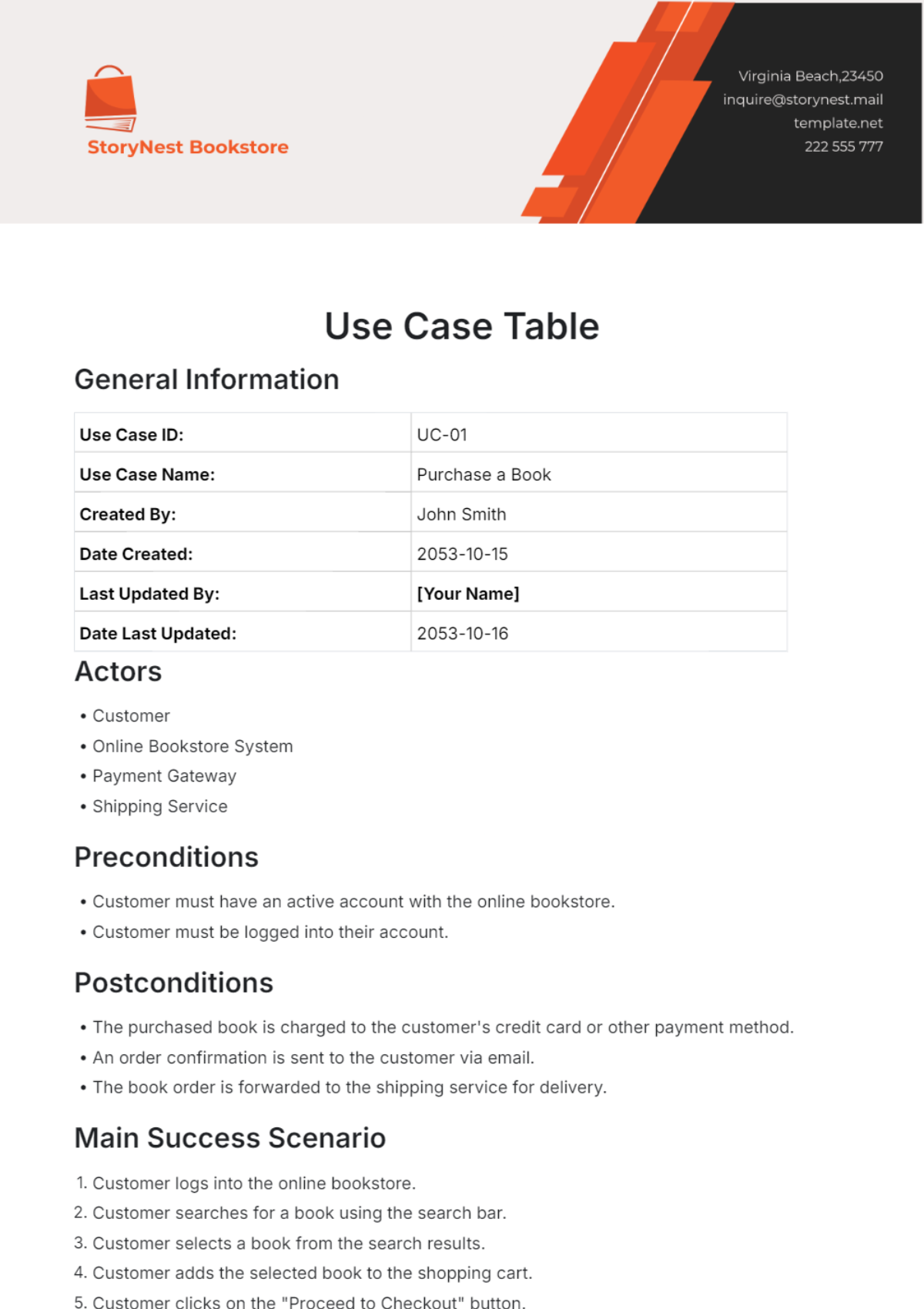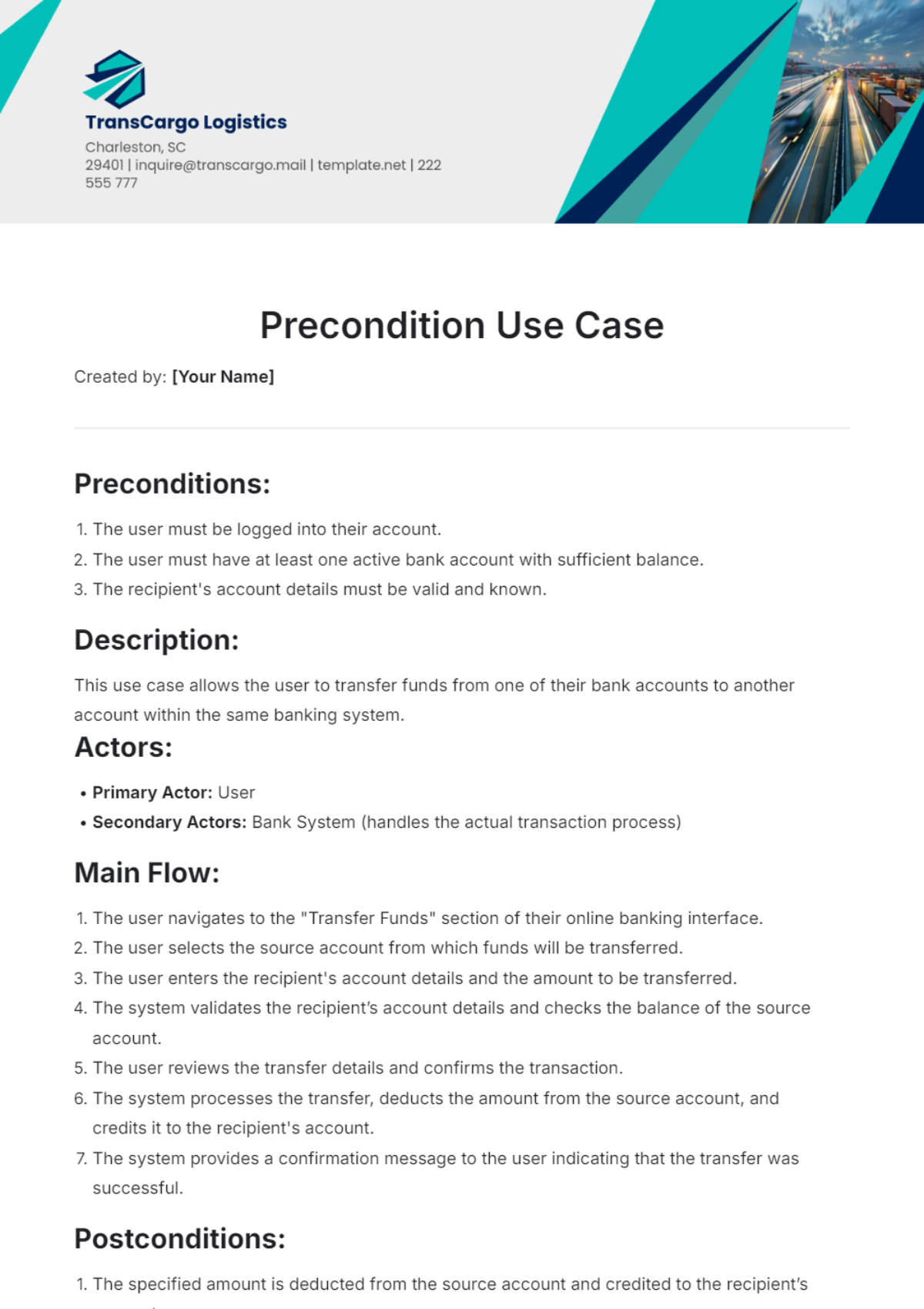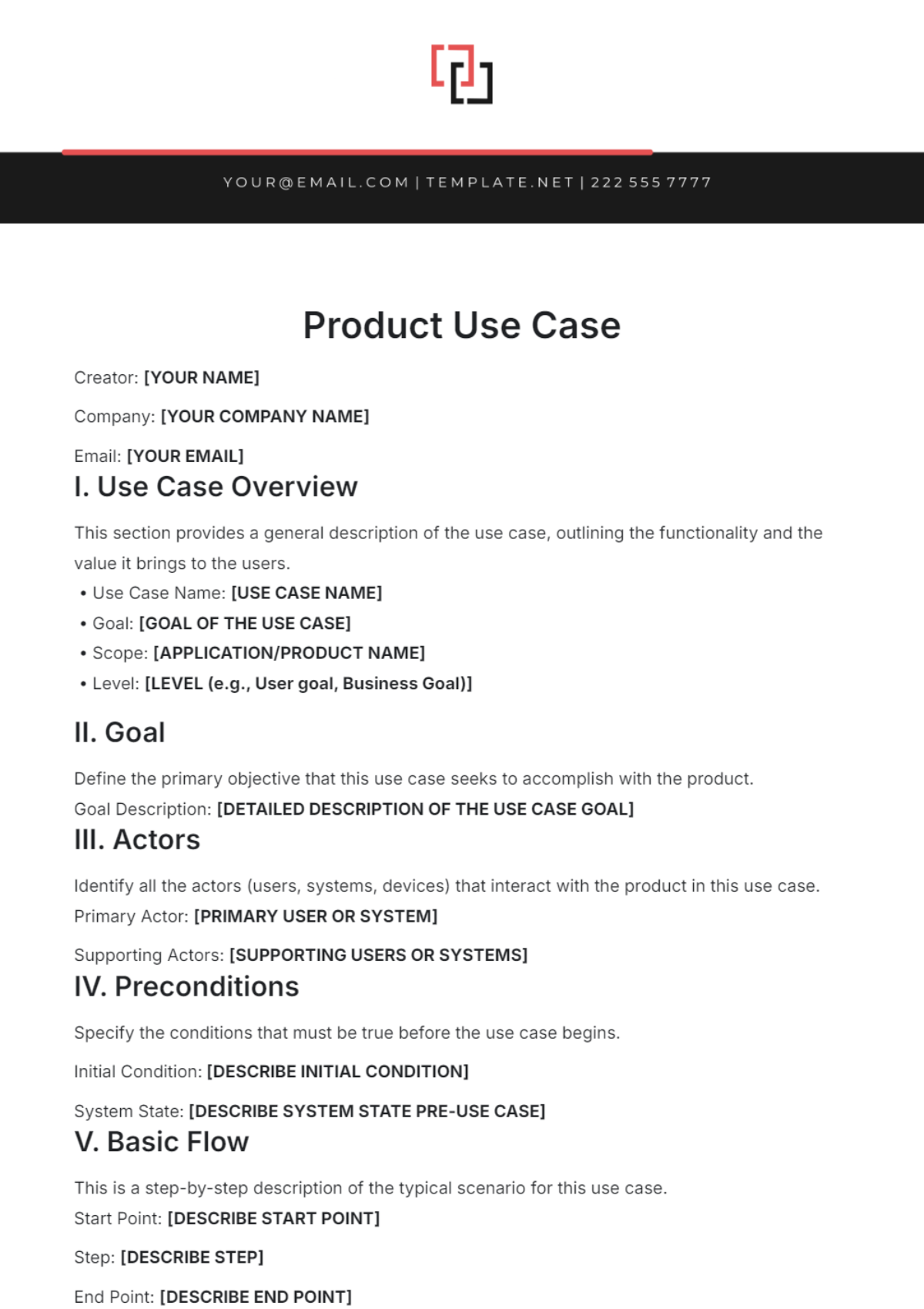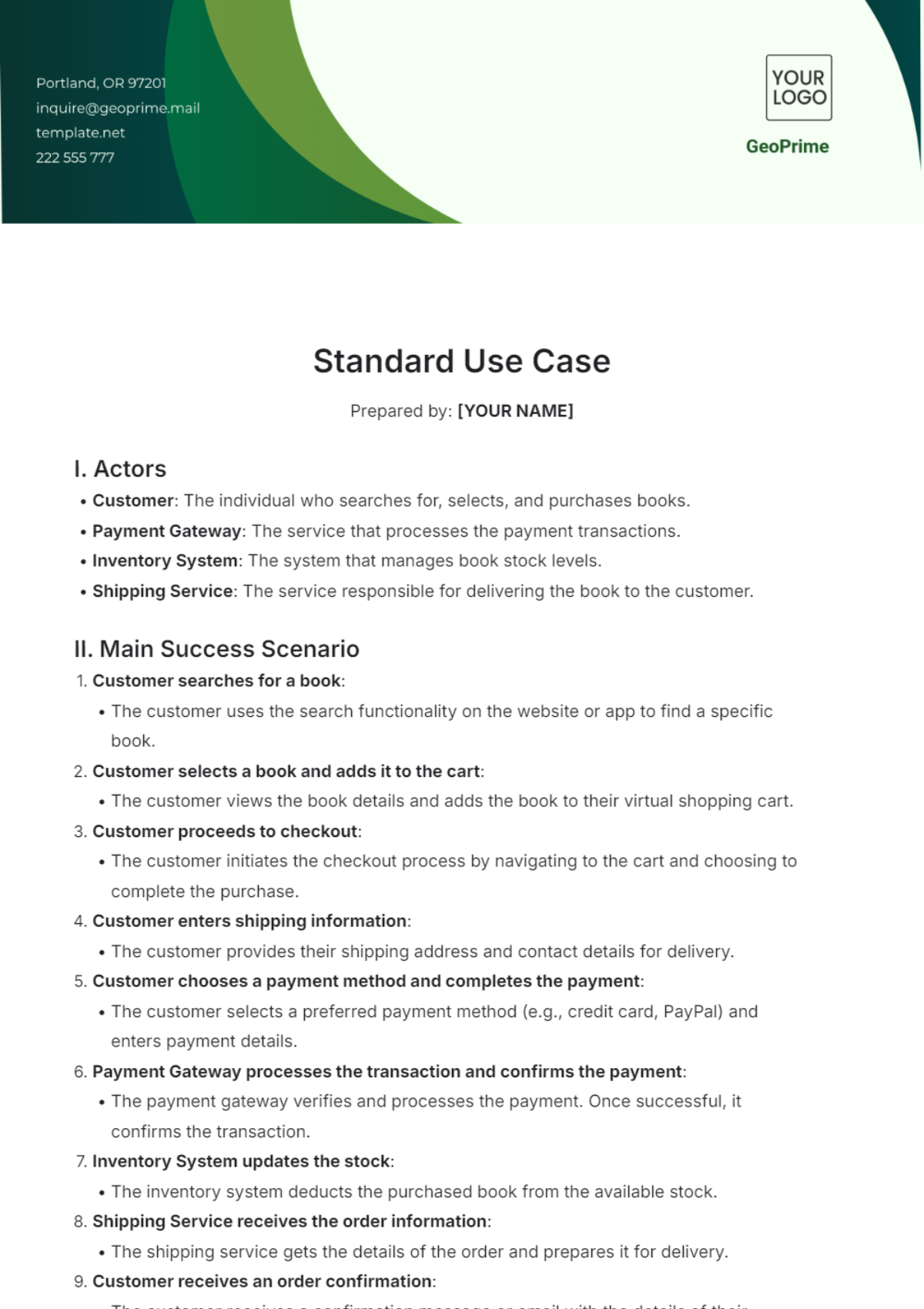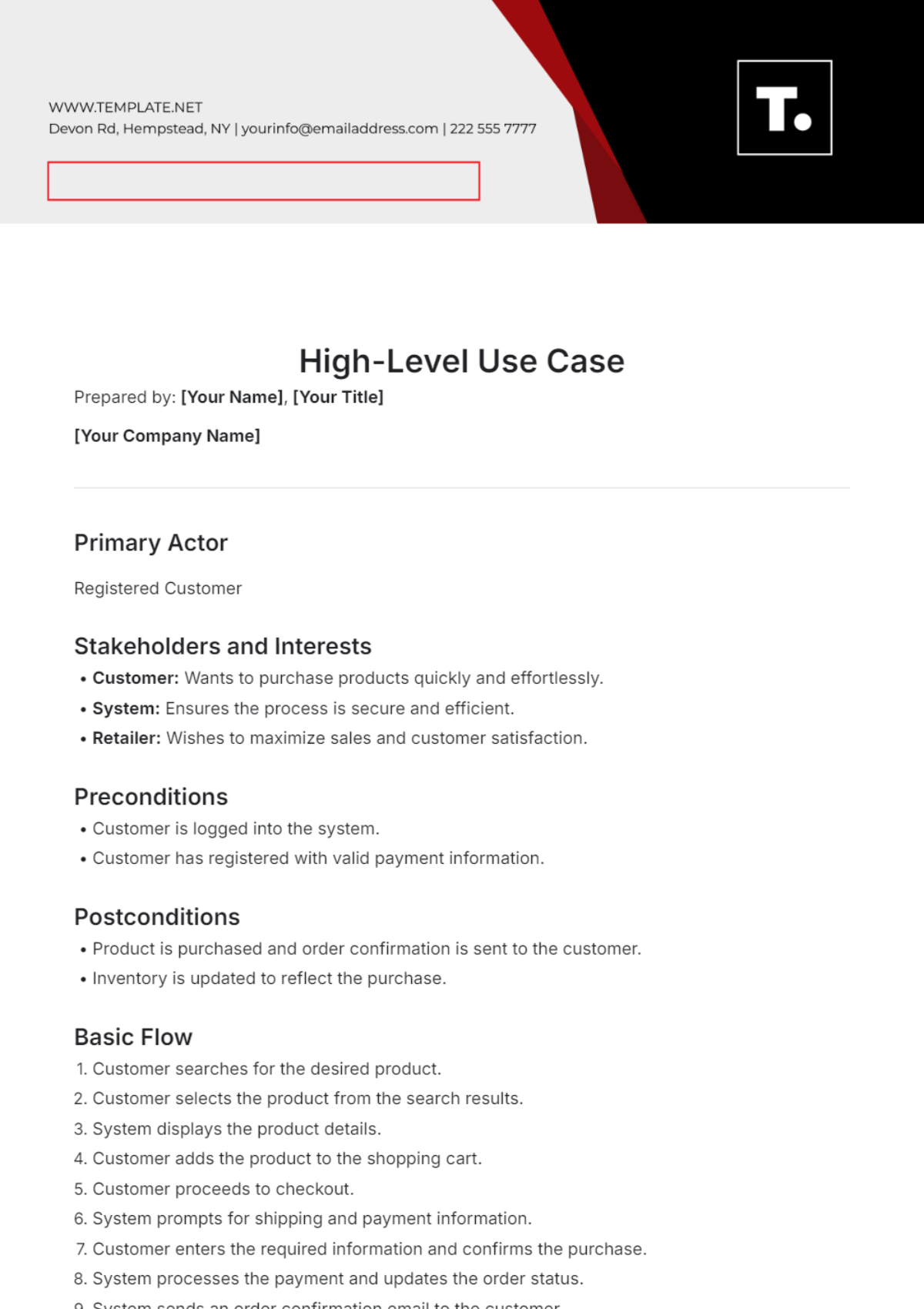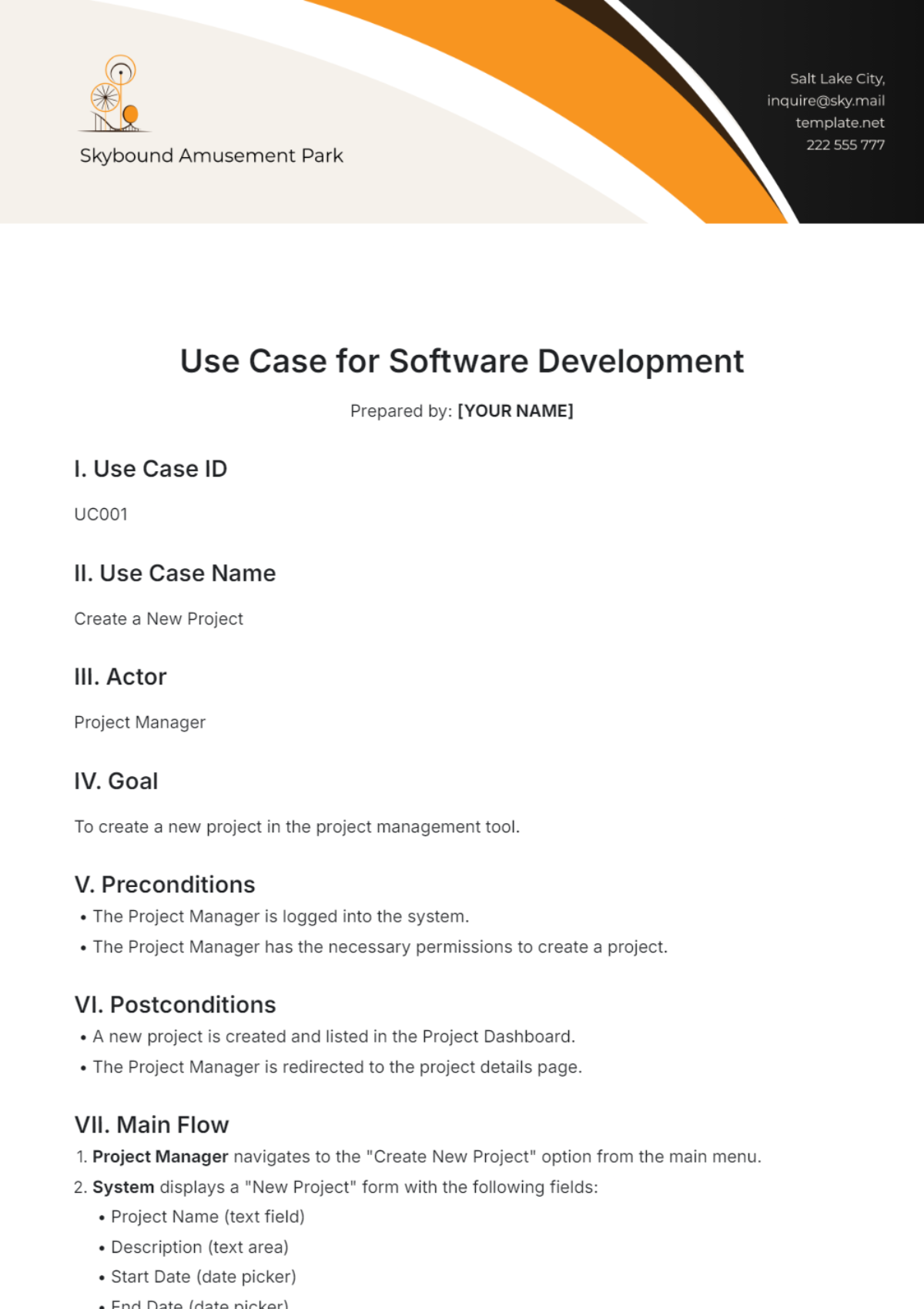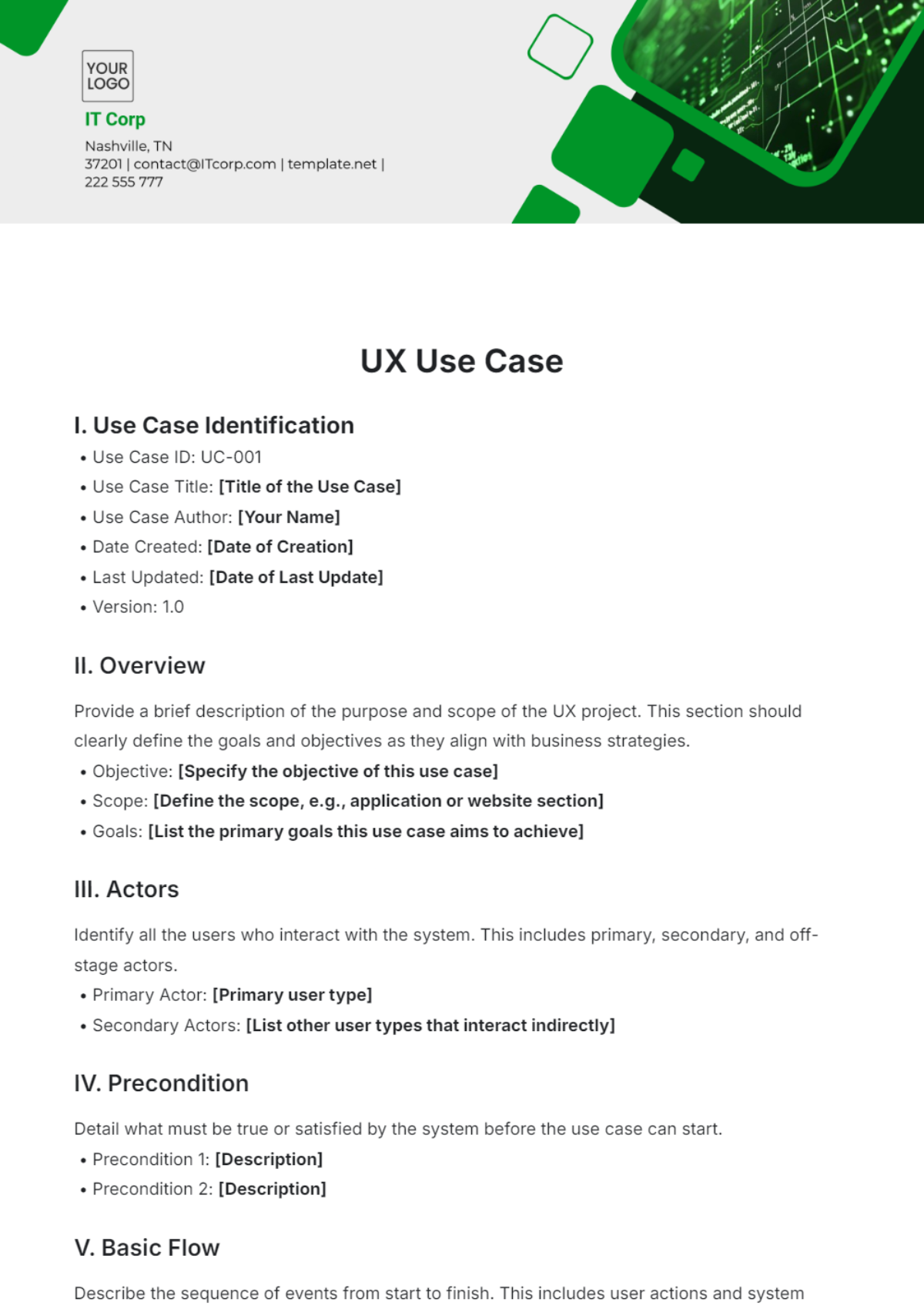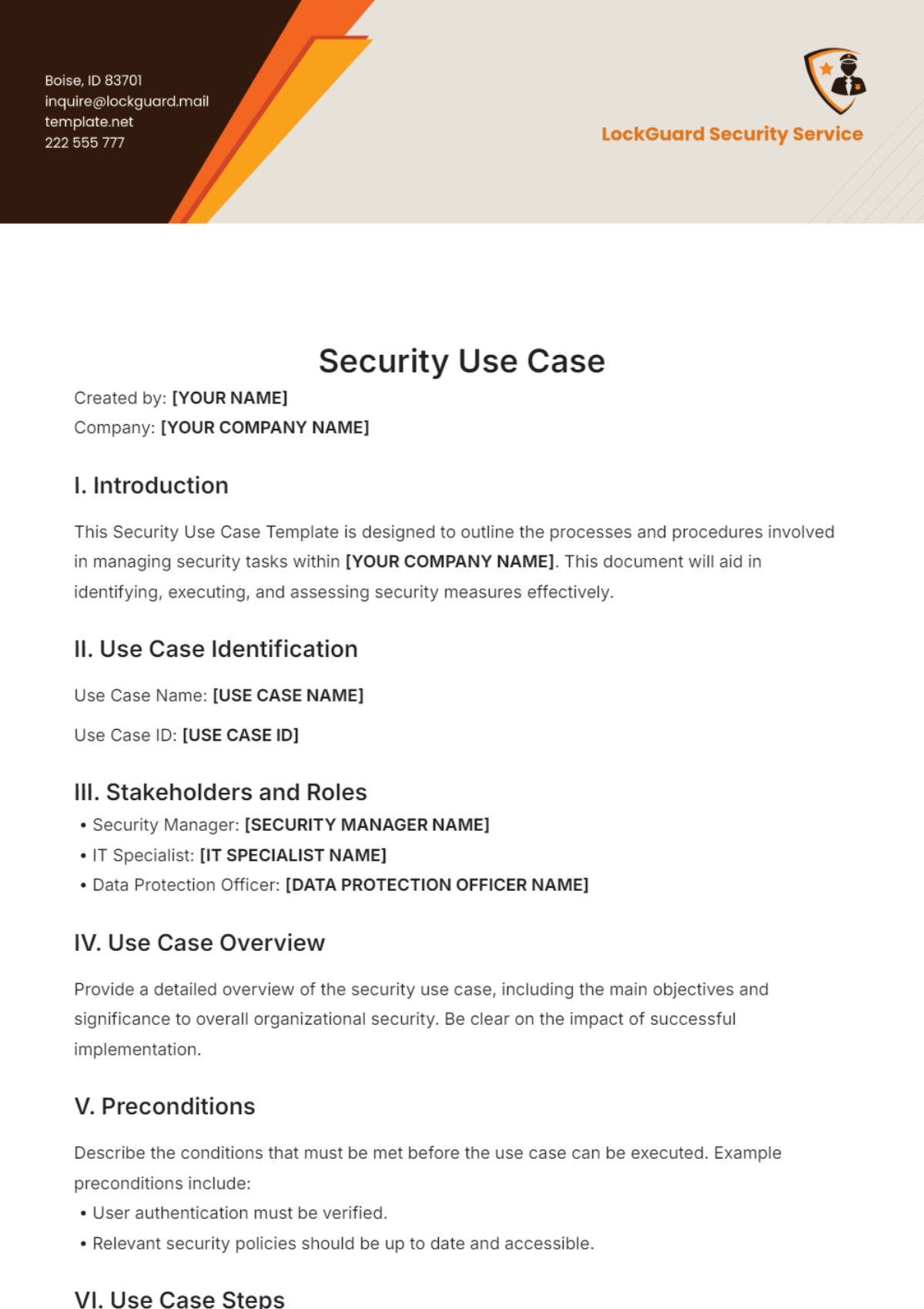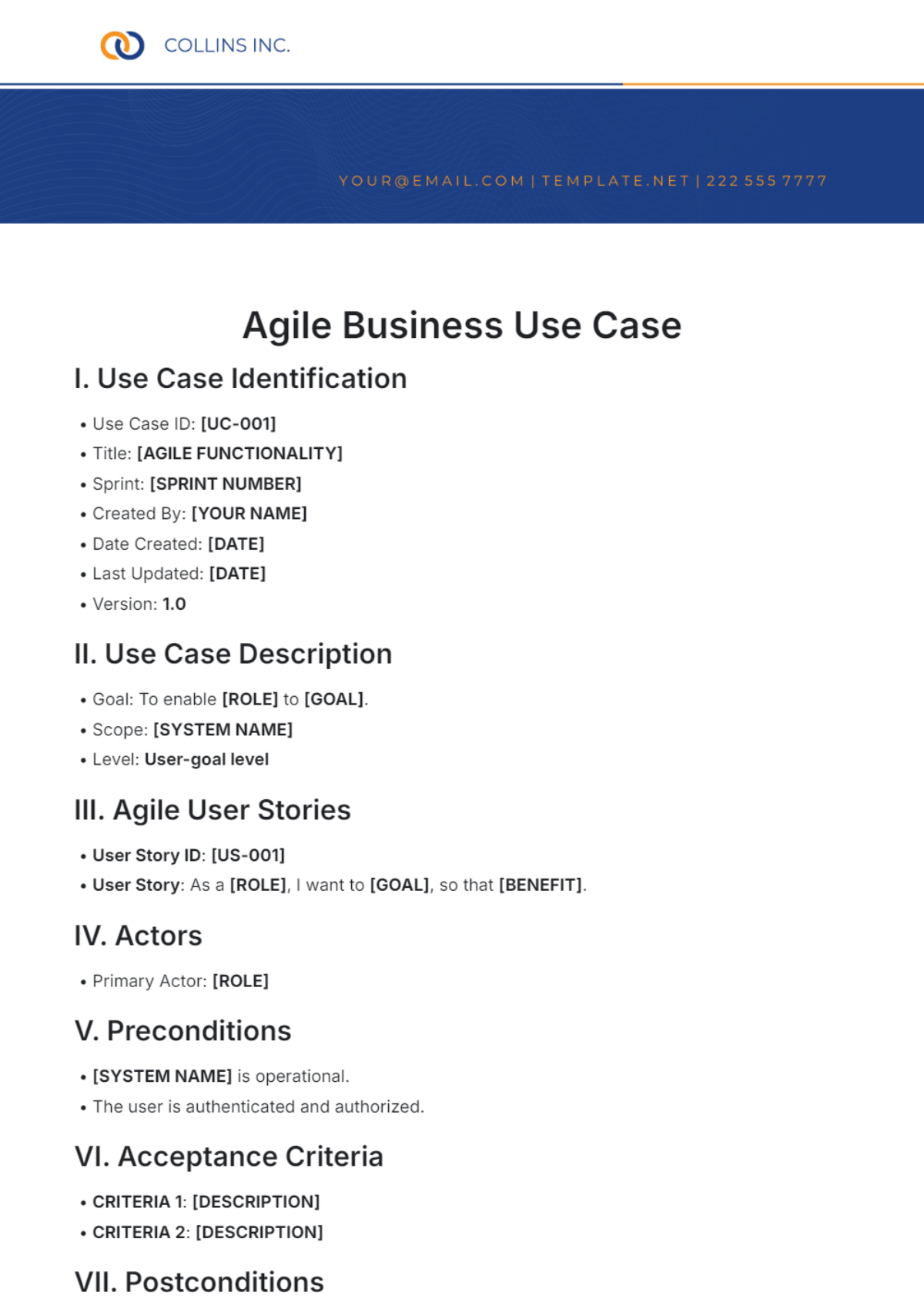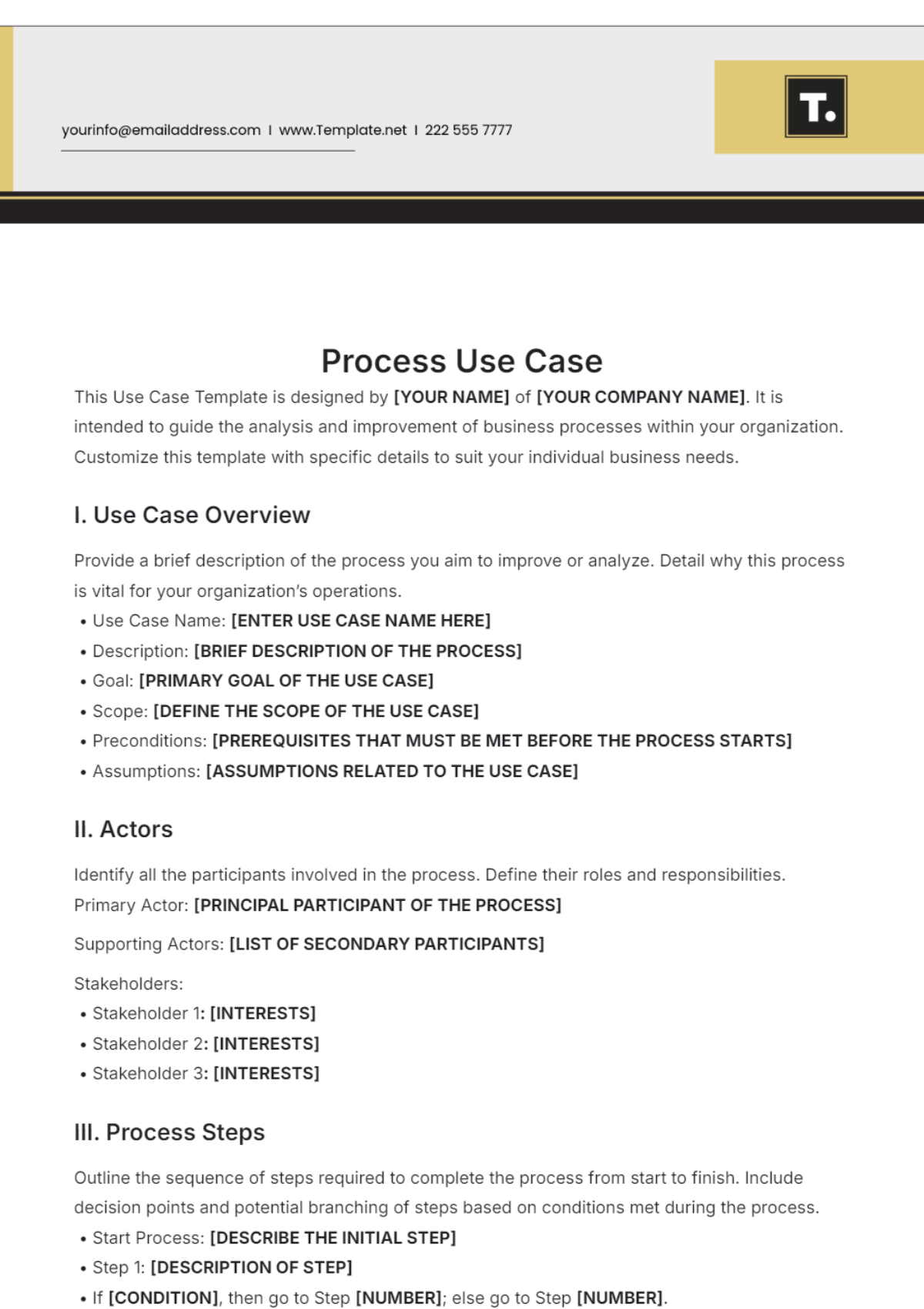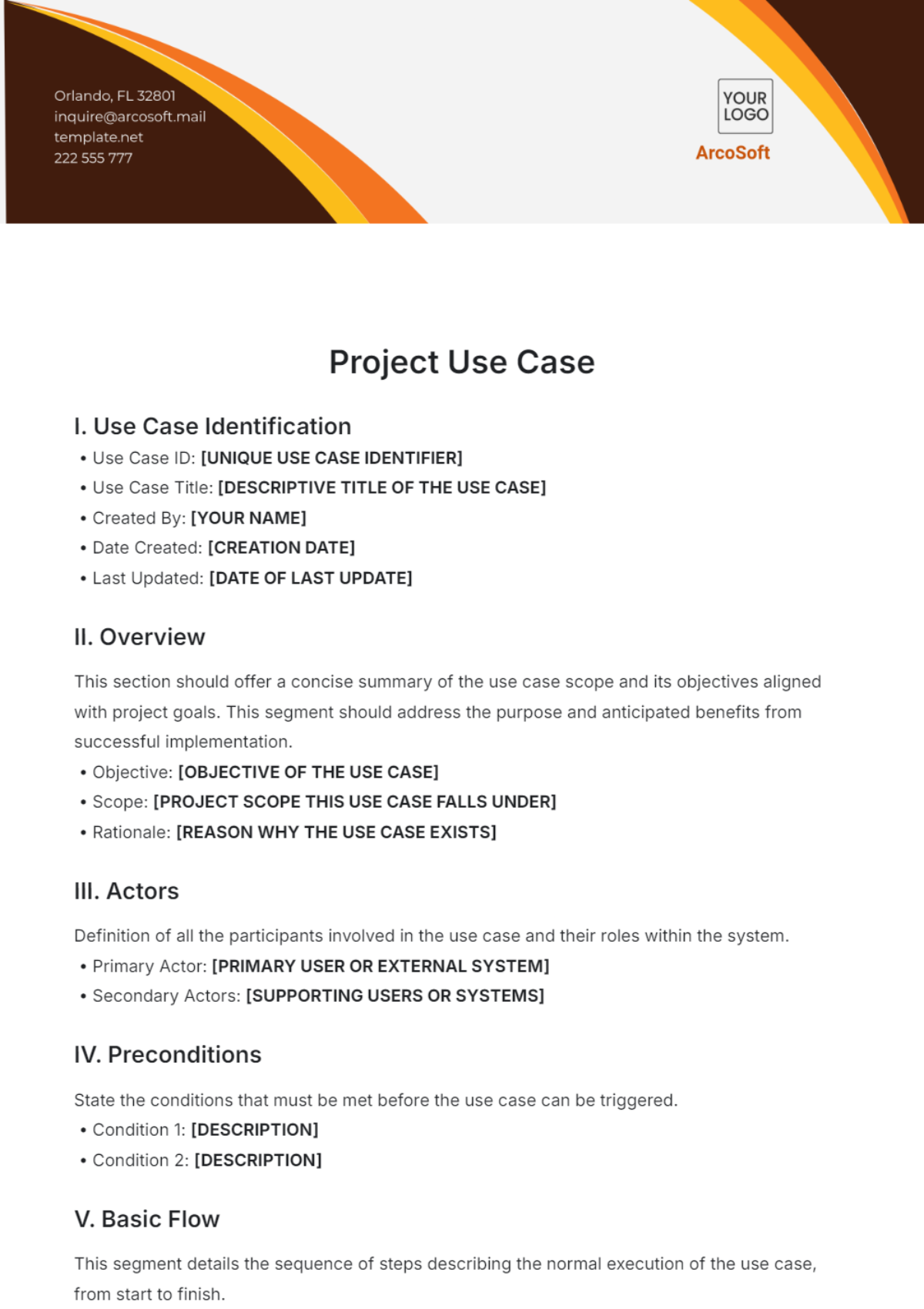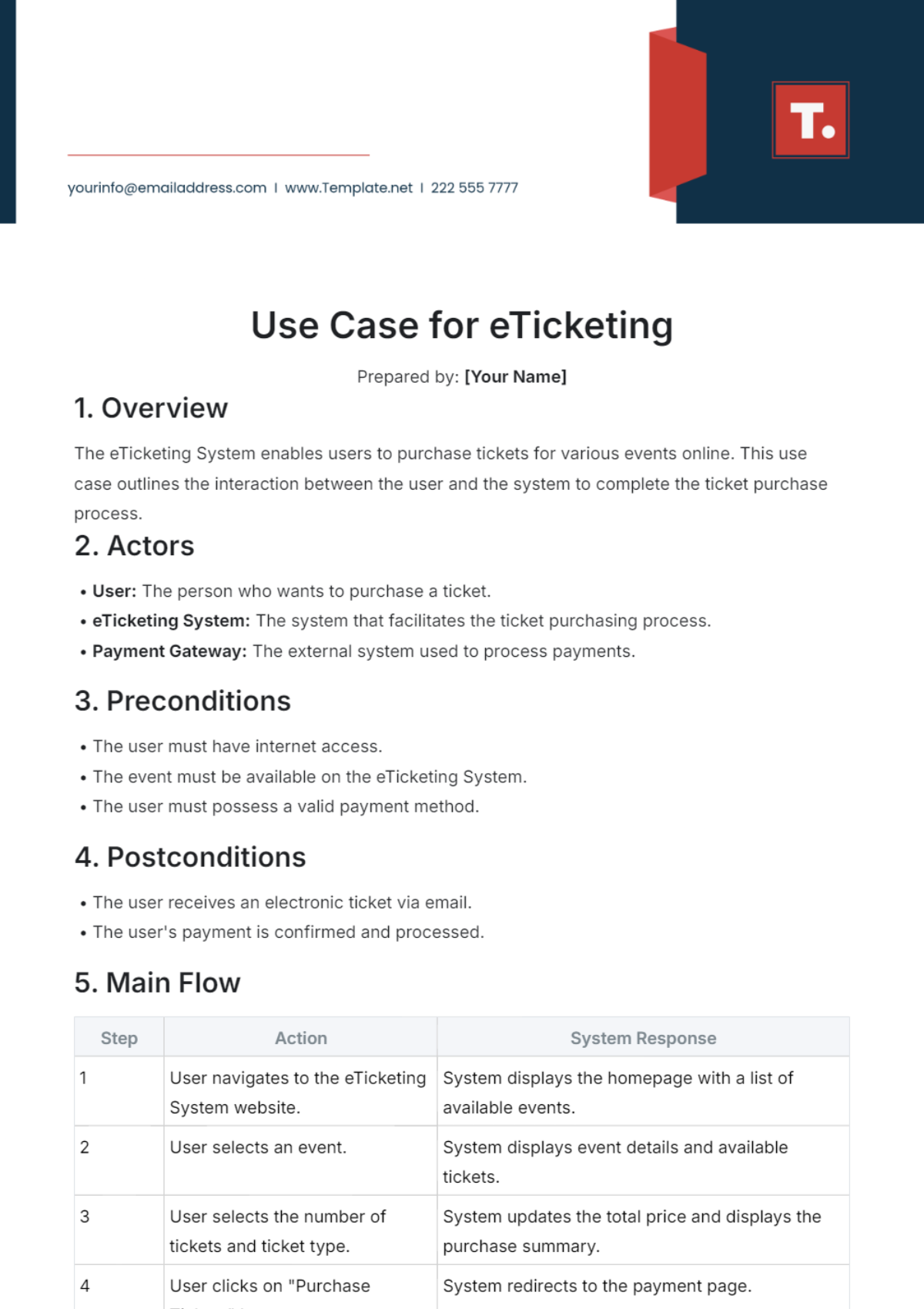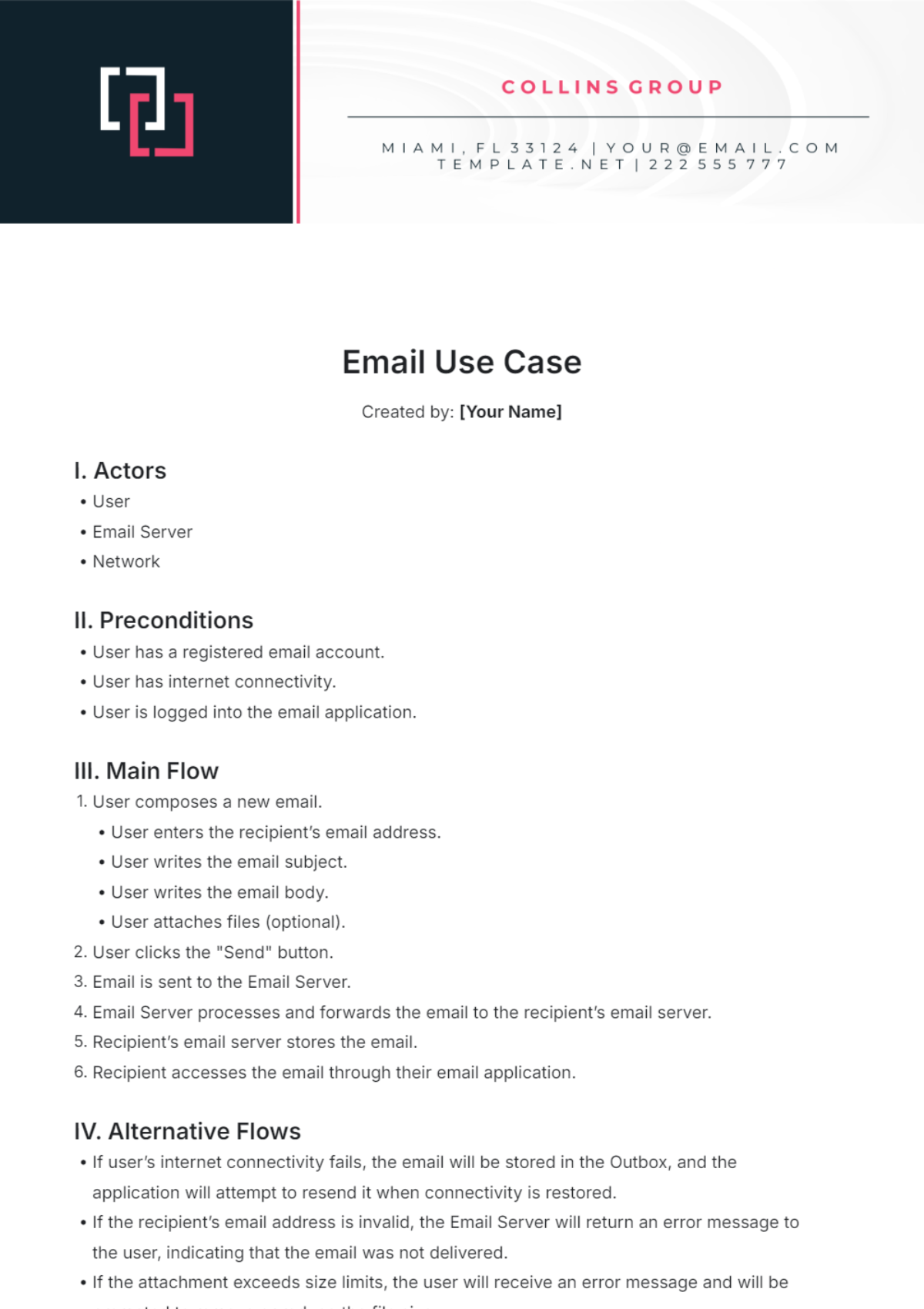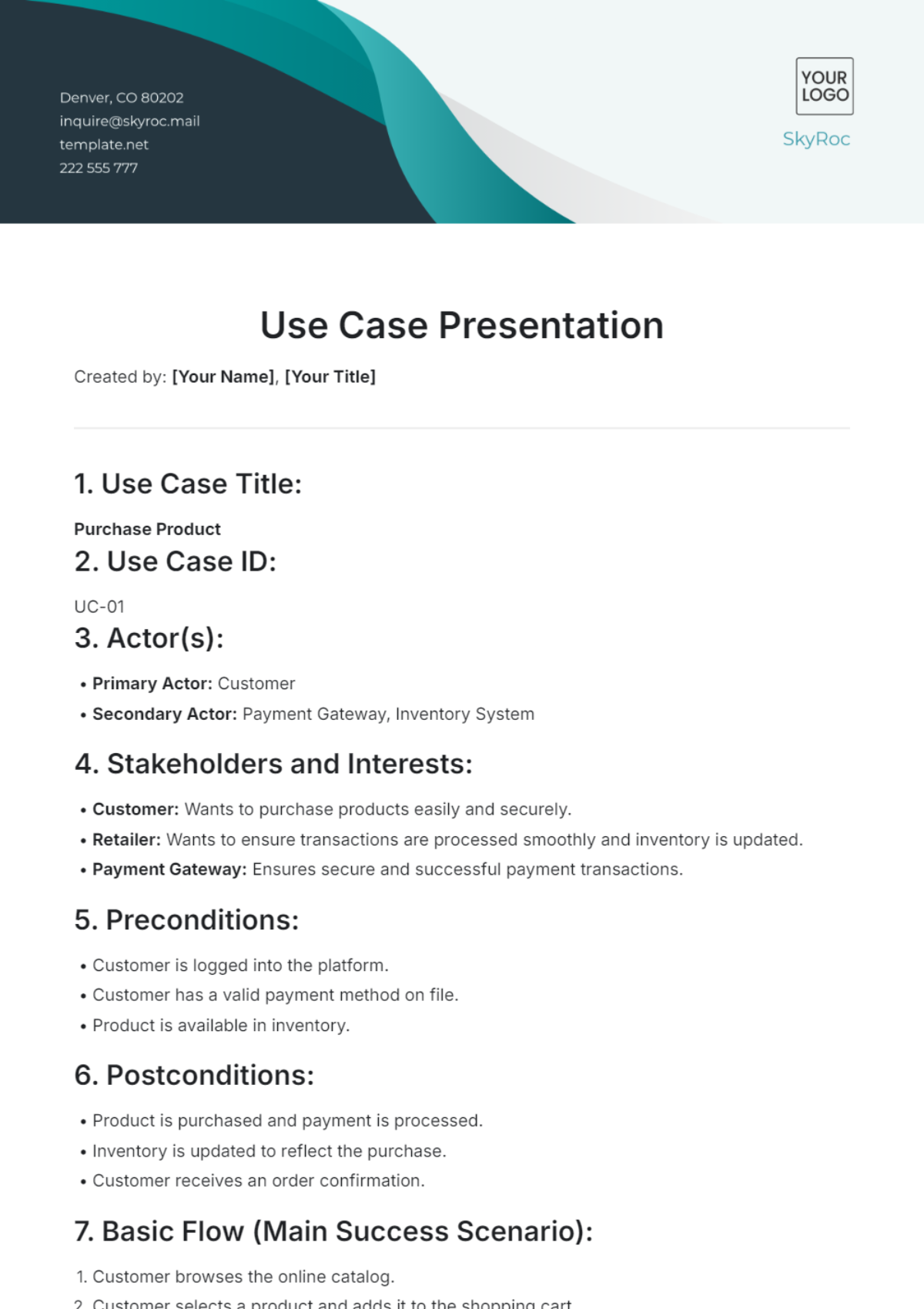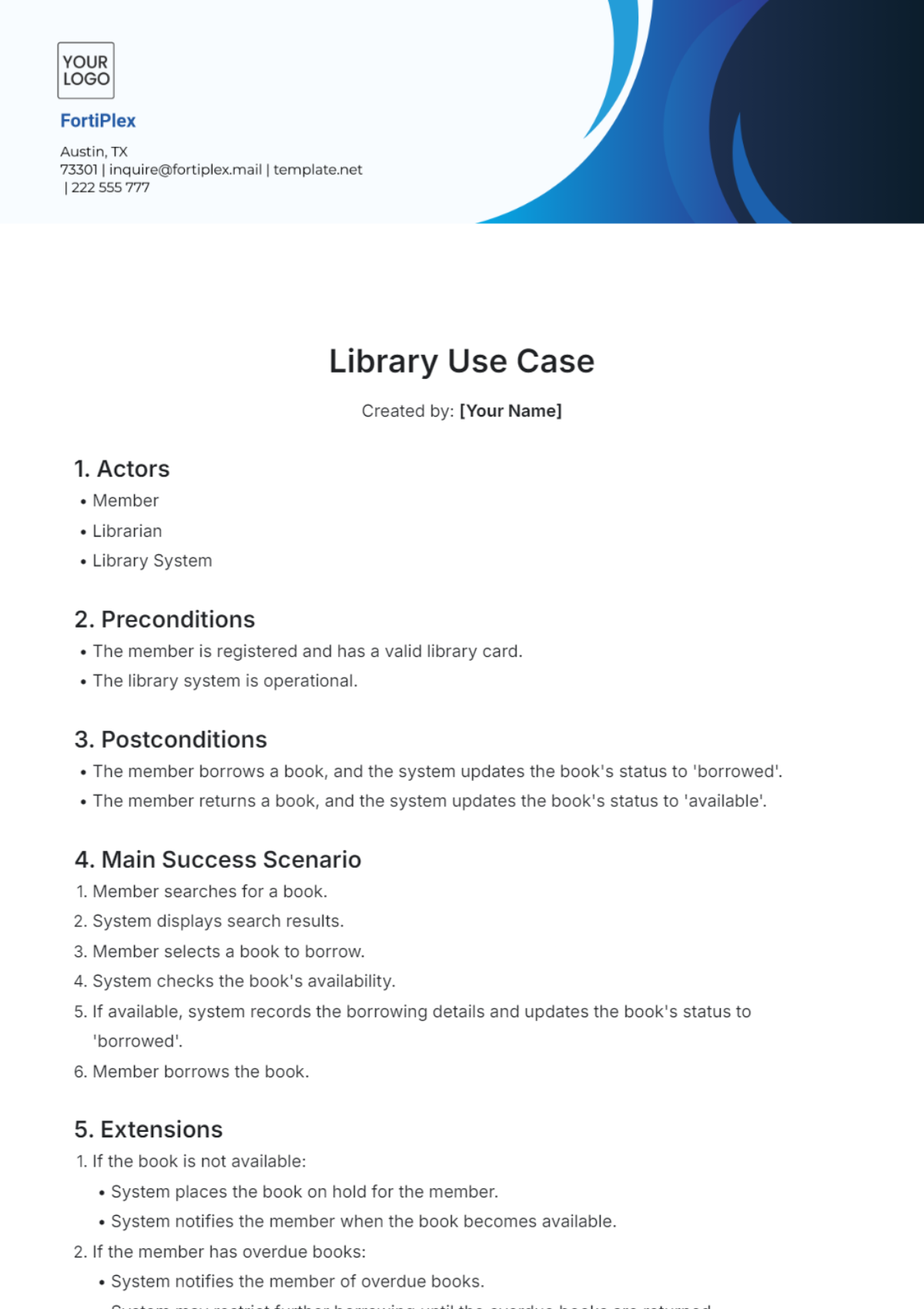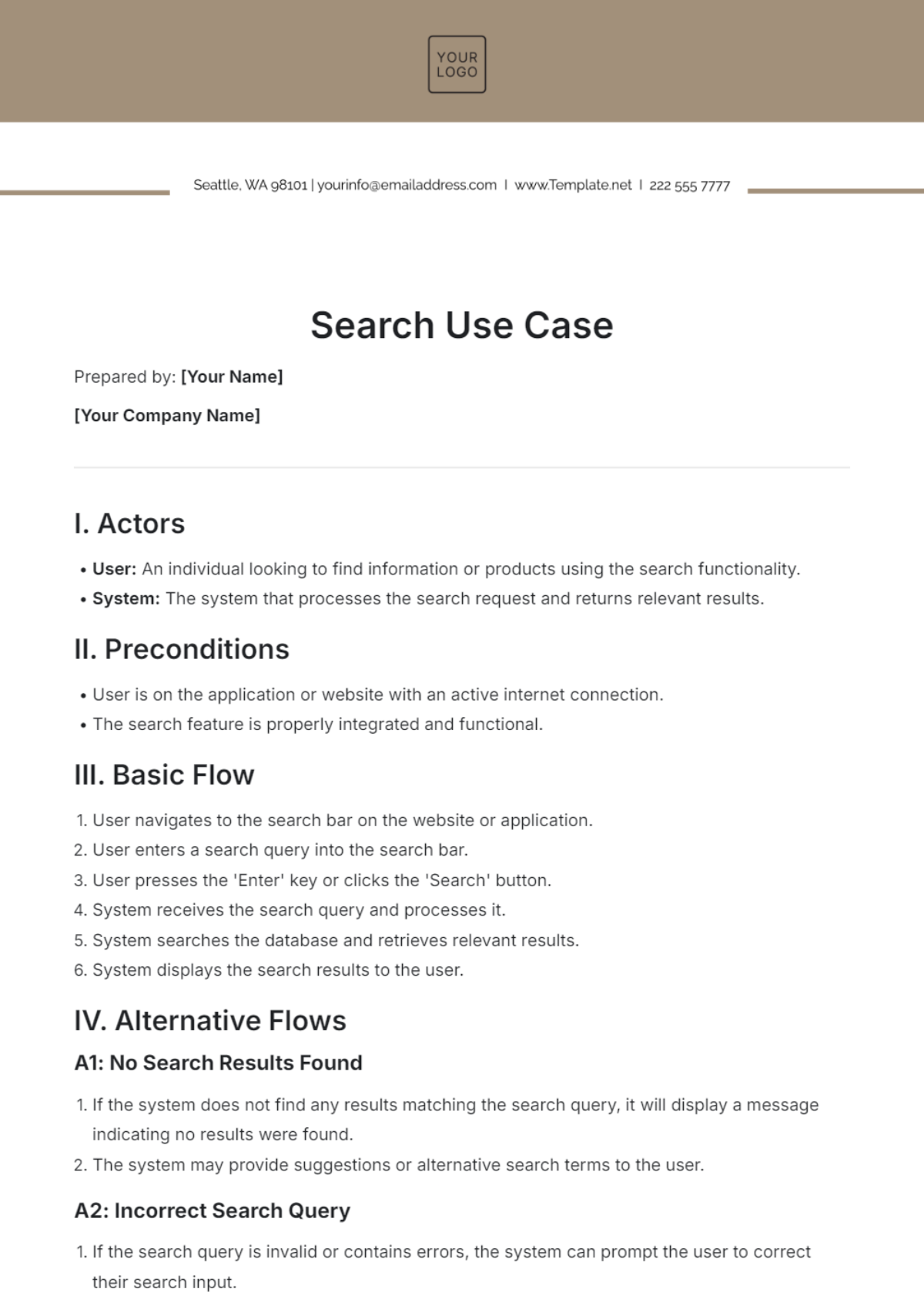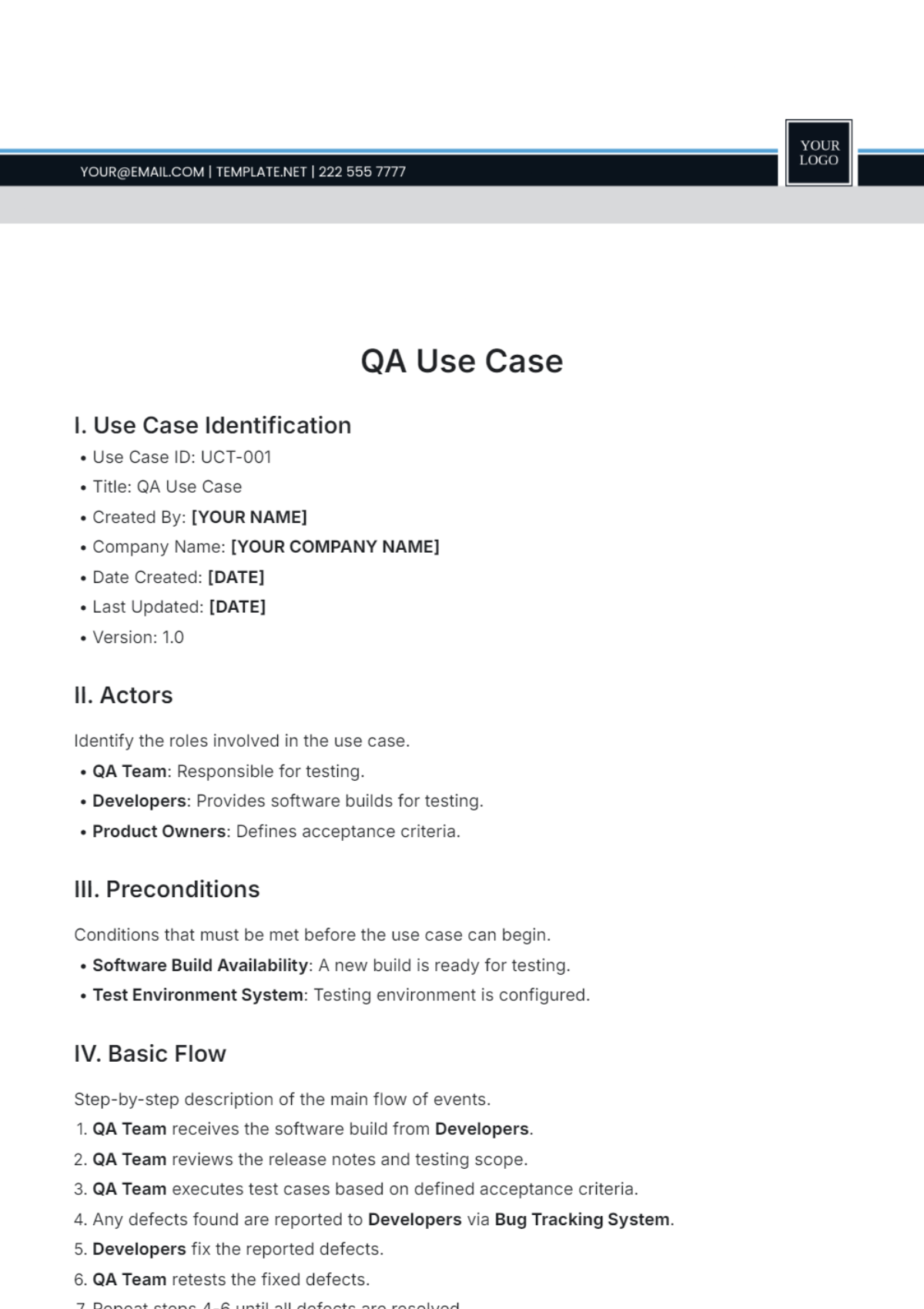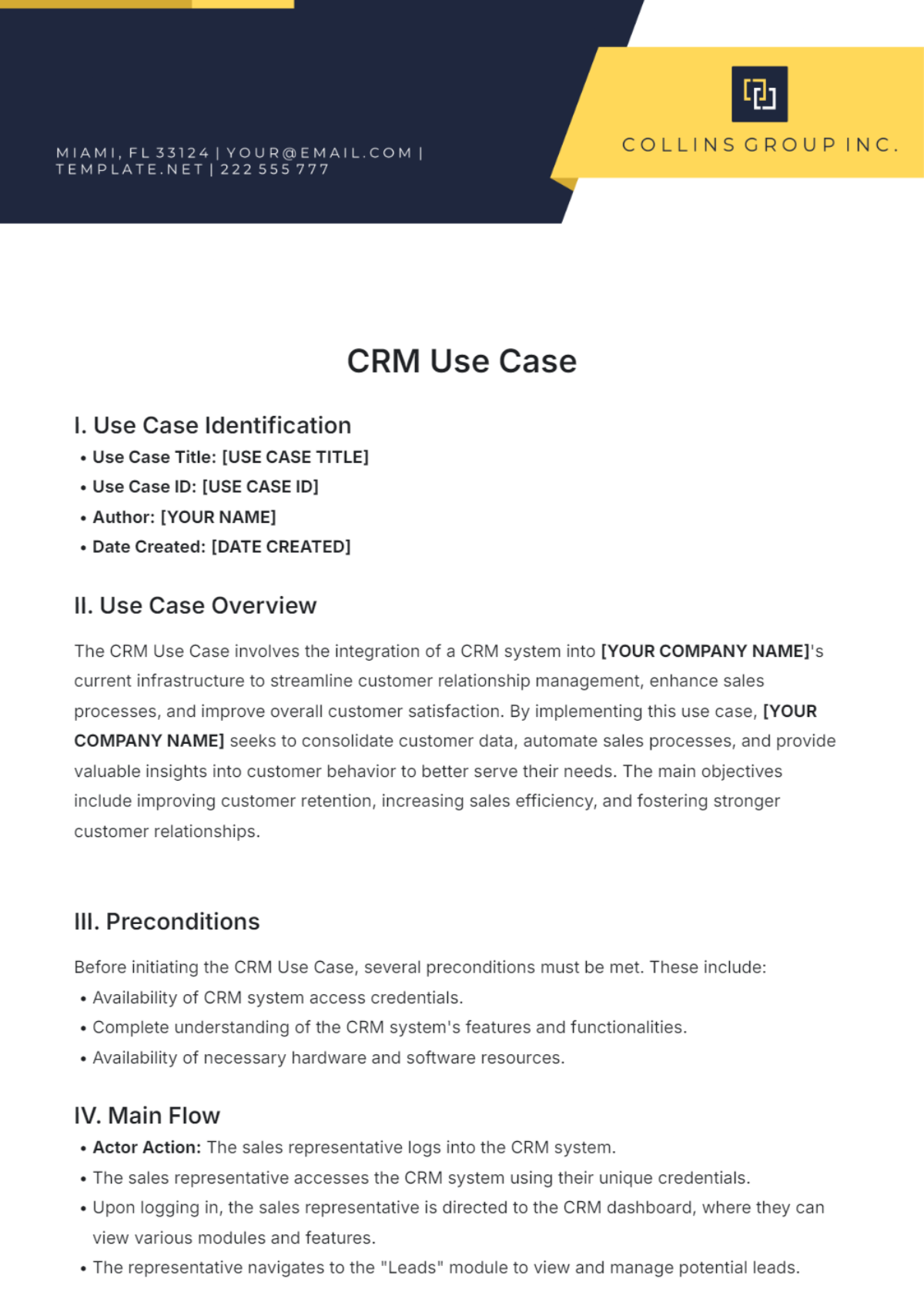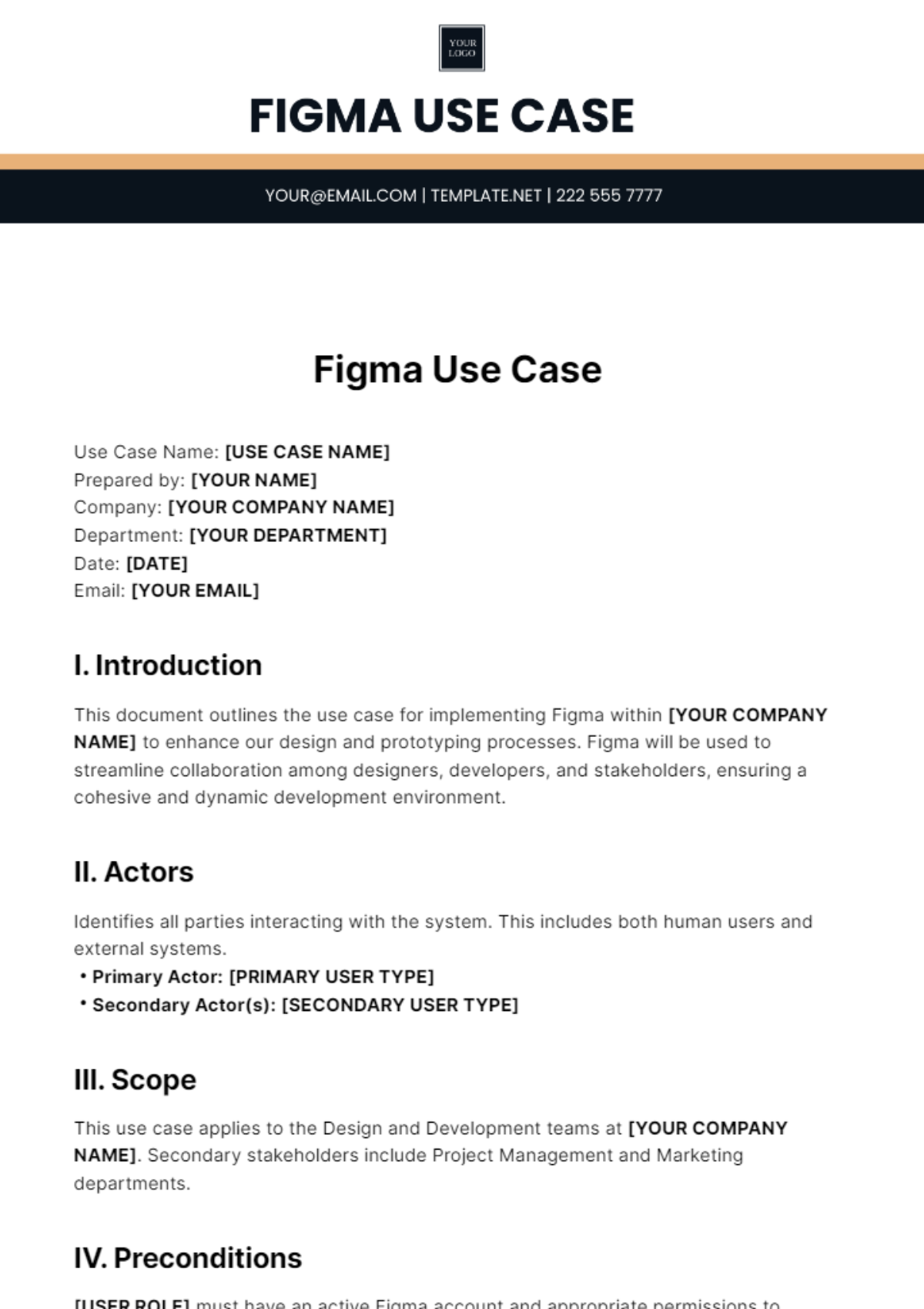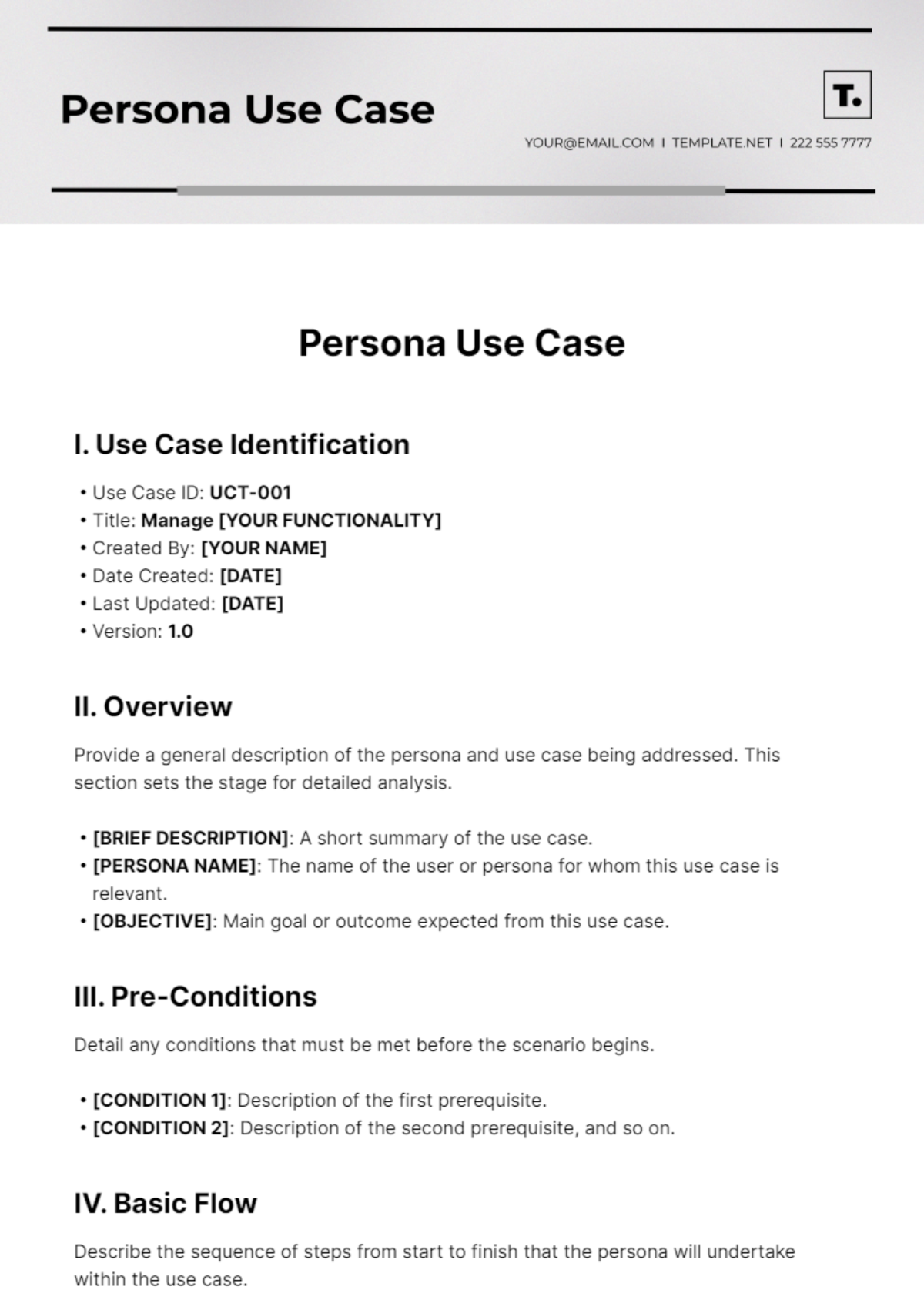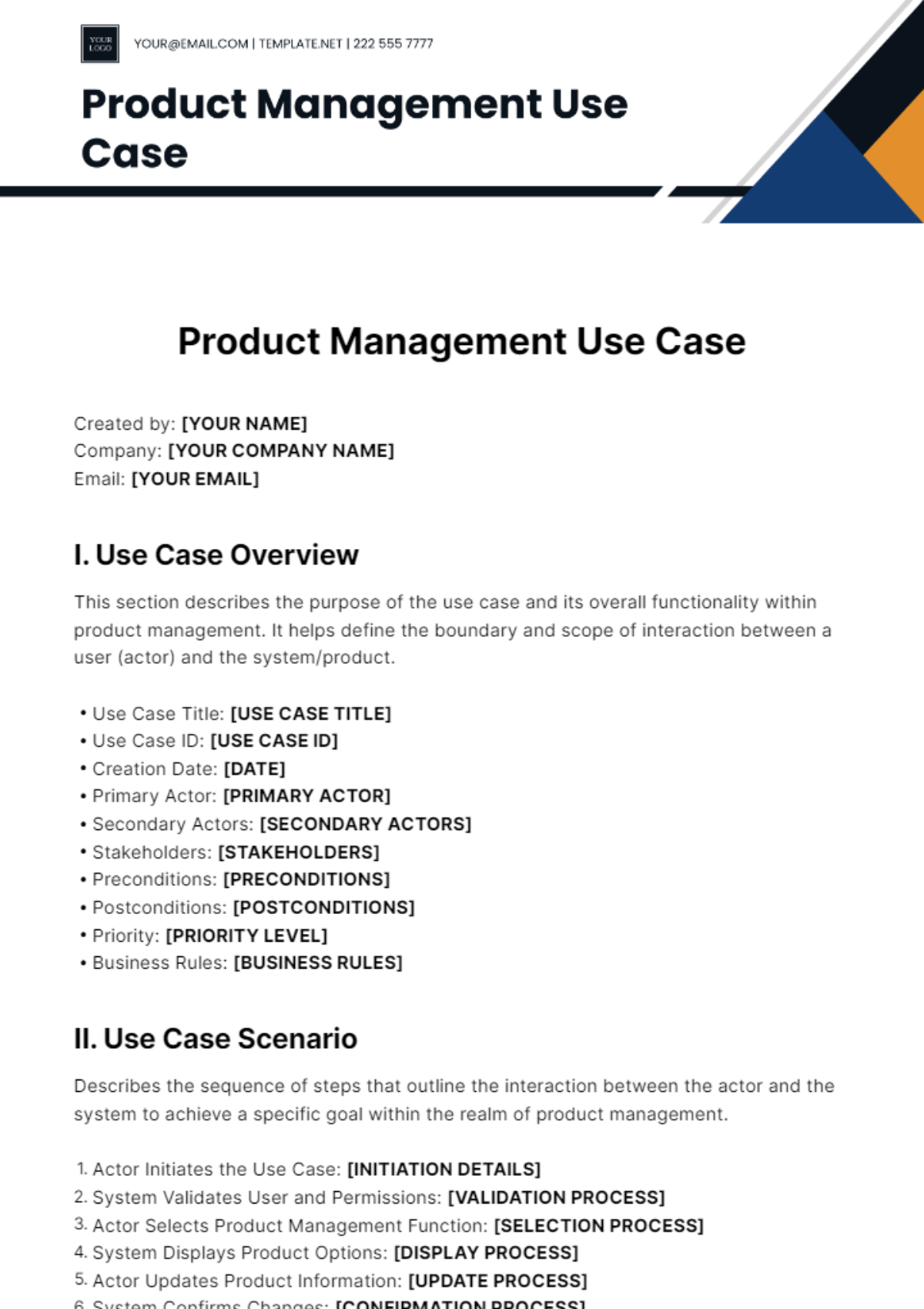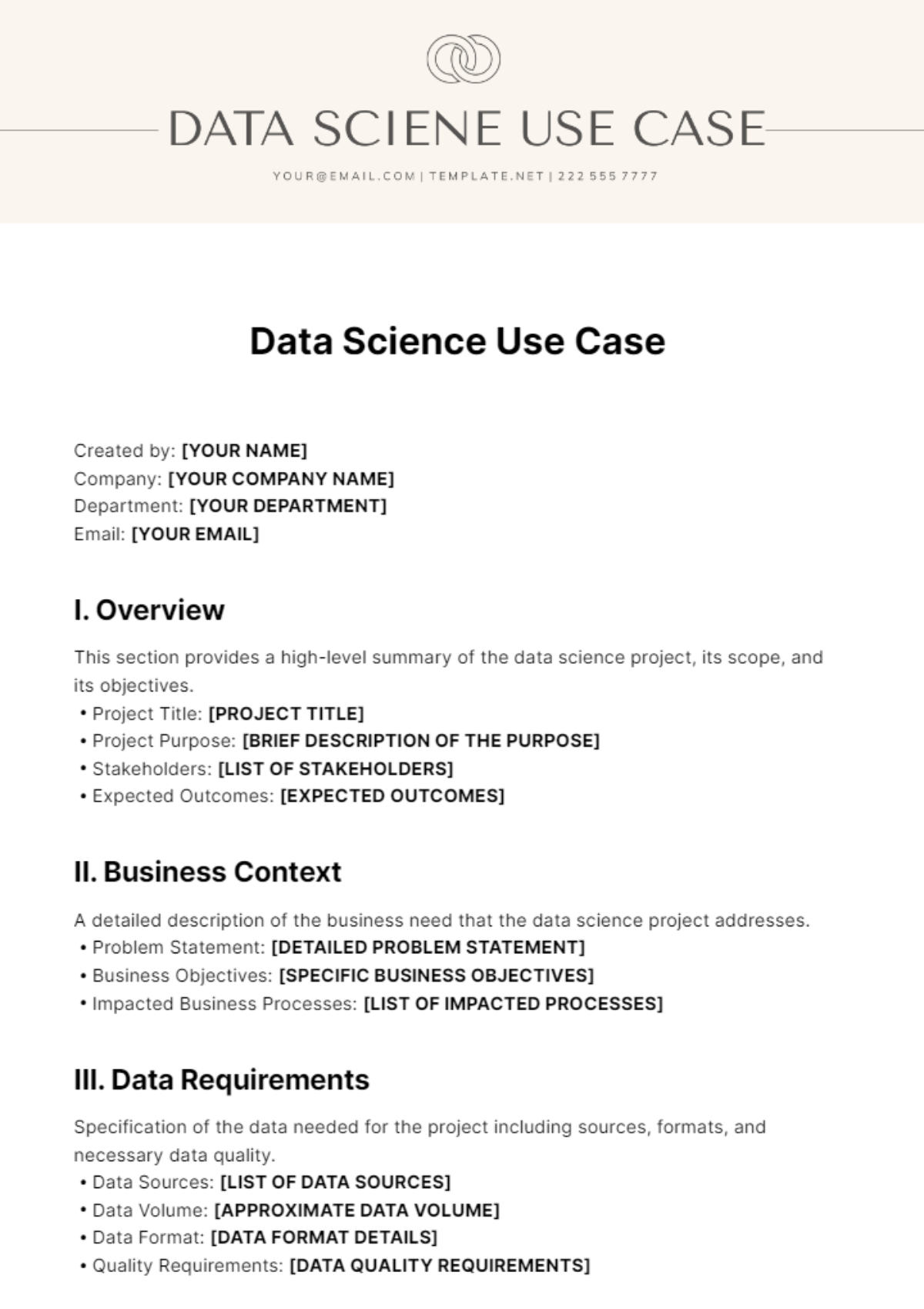Project Management Use Case
I. Use Case Overview
Provide an overview of the project management scenario that outlines the particular requirements and goals that [YOUR COMPANY NAME] aims to fulfill through this use case.
Project Scope: [DESCRIBE THE SCOPE OF THE PROJECT]
Primary Objective: [MAIN OBJECTIVE]
Stakeholders: [LIST KEY STAKEHOLDERS]
Use Case Identification
Use Case Name: Project Management
Use Case ID: [USE CASE ID]
Created by: [YOUR NAME]
Company: [YOUR COMPANY NAME]
Creation Date: [CREATION DATE]
Last Updated: [LAST UPDATE DATE]
II. Use Case Actors
Identify all the parties involved in the processes described in this use case, including both primary and secondary actors.
Primary Actors: [LIST MAIN ACTORS]
Supporting Actors: [LIST SUPPORTING ACTORS]
System Actors: [LIST SYSTEM COMPONENTS]
III. Use Case Preconditions
Specify the conditions that must be met before the processes in the use case can be initiated.
Initial Status: [CURRENT STATUS BEFORE THE USE CASE STARTS]
System Availability: [REQUIRED SYSTEM AVAILABILITY]
Data Availability: [CONDITION REGARDING DATA AVAILABILITY]
Resource Allocation: [CONDITION REGARDING RESOURCE ALLOCATION]
Stakeholder Alignment: [CONDITION REGARDING STAKEHOLDER ALIGNMENT]
Approval from Authorities: [CONDITION REGARDING APPROVAL FROM AUTHORITIES]
Financial Clearance: [CONDITION REGARDING FINANCIAL CLEARANCE]
Regulatory Compliance: [CONDITION REGARDING REGULATORY COMPLIANCE]
IV. Use Case Process Flow
Detail the steps taken from the start of the project to its closure. Use a numbered list to organize the phases and include relevant actions by identified actors.
Phase | Description | Relevant Actions by Actors |
|---|---|---|
Definition Phase | Define Initial Project Requirements | Actor A: [Action by Actor A] |
Planning Phase | Plan Project Timelines and Resources | Actor B: [Action by Actor B] |
Execution Phase | Execute the Planned Actions | Actor C: [Action by Actor C] |
Monitoring Phase | Regular Monitoring and Reporting Activities | Actor D: [Action by Actor D] |
Closure Phase | Closure and Evaluation of Project Outcomes | Actor E: [Action by Actor E] |
V. Use Case Success Criteria
Outline how success will be measured in this use case with reference to the initial objectives and stakeholder expectations.
Completion on Time: [SUCCESS CRITERIA FOR TIMELY COMPLETION]
Budget Compliance: [BUDGET LIMITS AND SUCCESS EVALUATION]
Stakeholder Satisfaction: [HOW STAKEHOLDER SATISFACTION IS MEASURED]
VI. Use Case Postconditions
Describe what should be true or resolved by the end of the use case.
Project Delivery Status: [STATUS OF THE PROJECT UPON COMPLETION]
System Status: [OPERATIONAL STATUS OF SYSTEMS USED]
Budget Compliance: [BUDGET STATUS AFTER PROJECT COMPLETION]
Documentation Completion: [COMPLETION OF PROJECT DOCUMENTATION]
Stakeholder Approval: [APPROVAL FROM STAKEHOLDERS]
Client Sign-off: [CLIENT'S SIGN-OFF ON PROJECT COMPLETION]
Resource Reassignment: [REASSIGNMENT OF RESOURCES TO NEW PROJECTS]
VII. Use Case Exceptions
List potential challenges or exceptions that might arise during the execution of the use case and propose mitigations.
Technology Failure: [RESPONSE TO TECH FAILURES]
Resource Shortfall: [STEPS TO ADDRESS RESOURCE SHORTFALLS]
Schedule Deviation: [MEASURES TO HANDLE SCHEDULE DEVIATIONS]
VIII. Use Case Notes and Remarks
Include any additional information, observations, or insights relevant to this use case.
Lessons Learned: [SUMMARY OF KEY LEARNINGS]
Improvement Suggestions: [PROPOSED IMPROVEMENTS FOR FUTURE PROJECTS]
Other Points:
Future Planning: [FUTURE PLANNING CONSIDERATIONS]
Communication Enhancement: [SUGGESTIONS FOR COMMUNICATION ENHANCEMENT]
Risk Management: [RISK MANAGEMENT STRATEGIES]
Quality Control: [SUGGESTIONS FOR ENHANCING QUALITY CONTROL]
Stakeholder Engagement: [STRATEGIES TO IMPROVE STAKEHOLDER ENGAGEMENT]
Resource Optimization: [IDEAS FOR RESOURCE OPTIMIZATION]
Technology Integration: [TECHNOLOGY INTEGRATION SUGGESTIONS]
Performance Metrics: [PROPOSED PERFORMANCE METRICS]
Continuous Improvement: [PLANS FOR CONTINUOUS IMPROVEMENT]
IX. Related Use Cases
Related Use Case 1: [RELATED USE CASE 1]
Related Use Case 2: [RELATED USE CASE 2]
Other Related Use Cases: [OTHER RELATED USE CASES]
